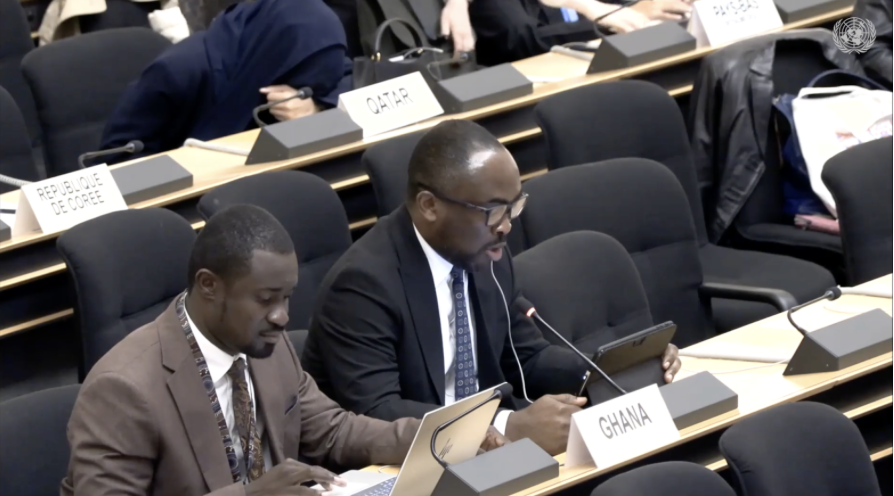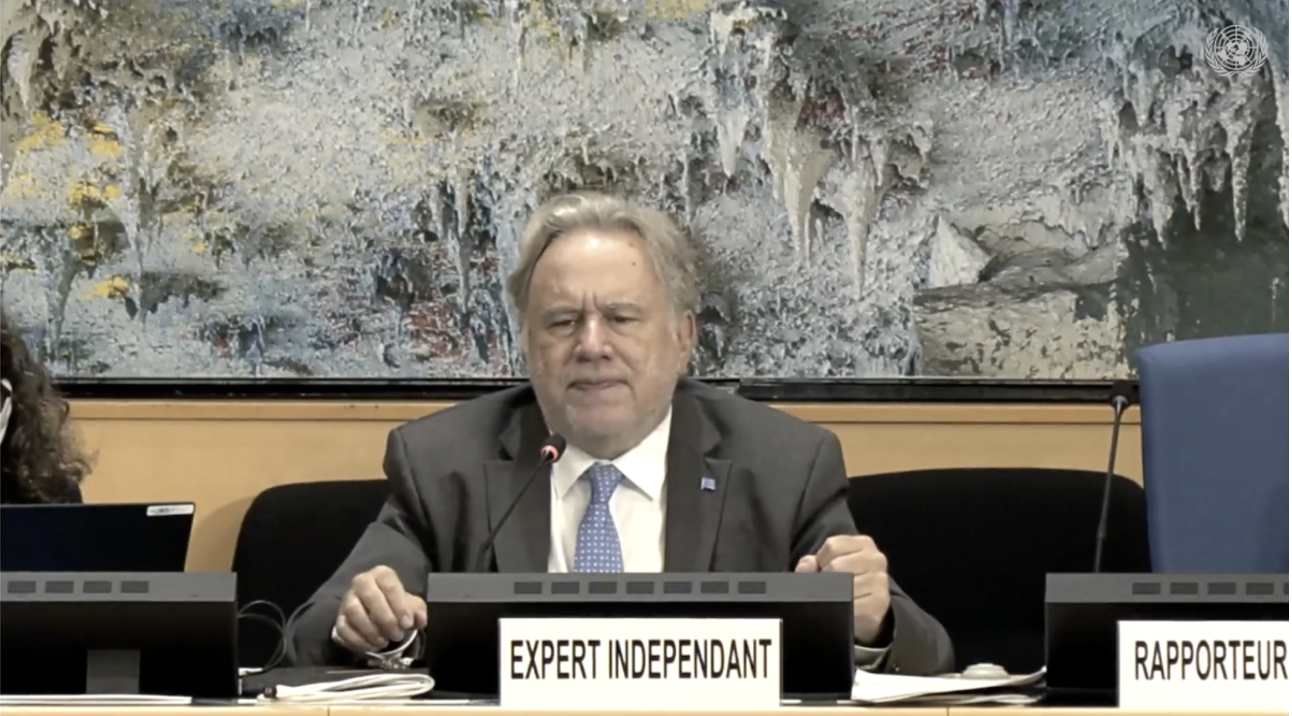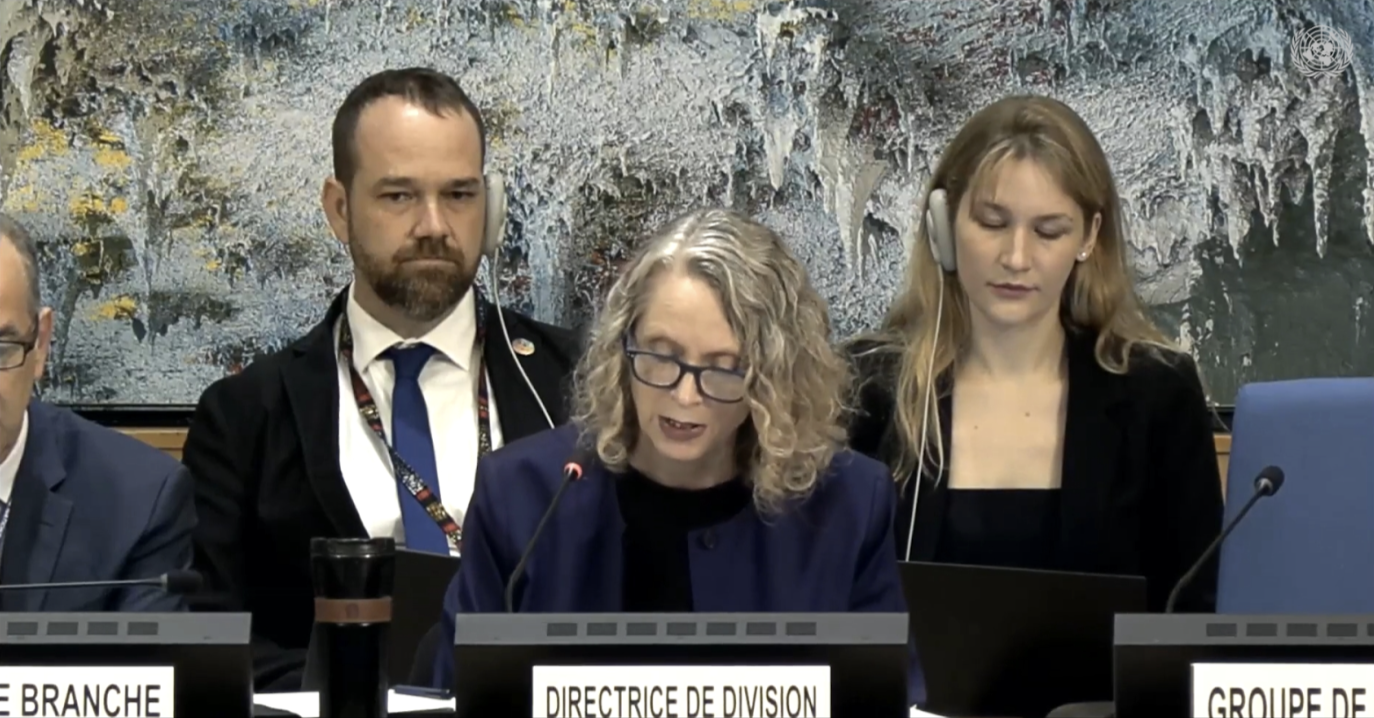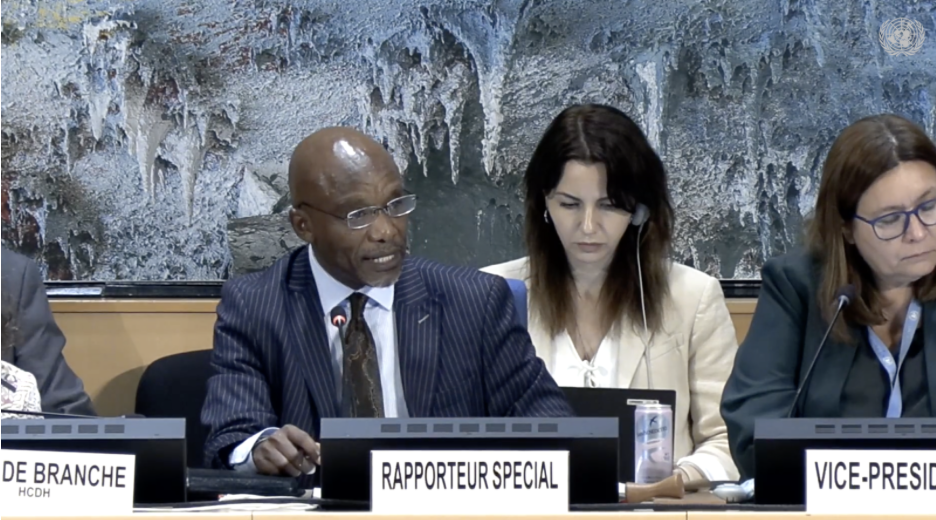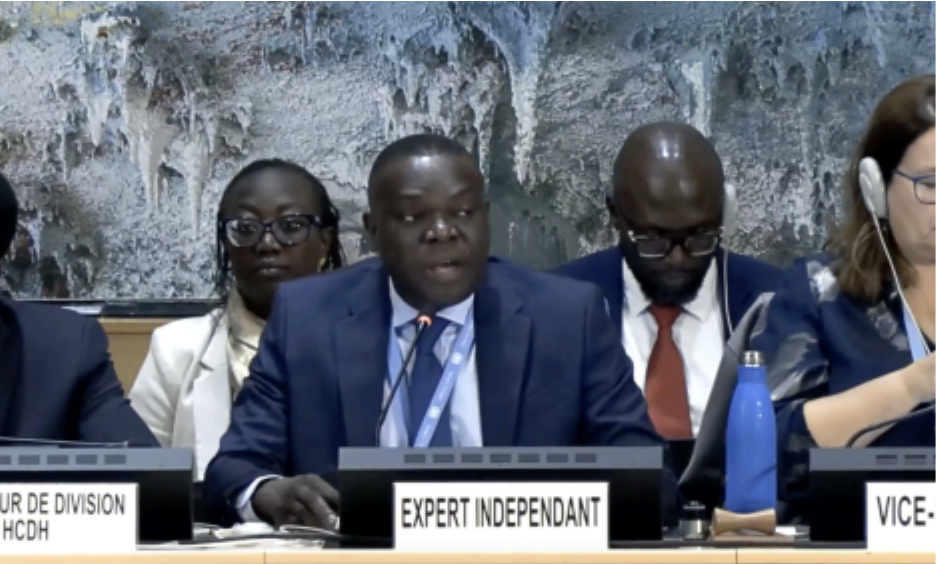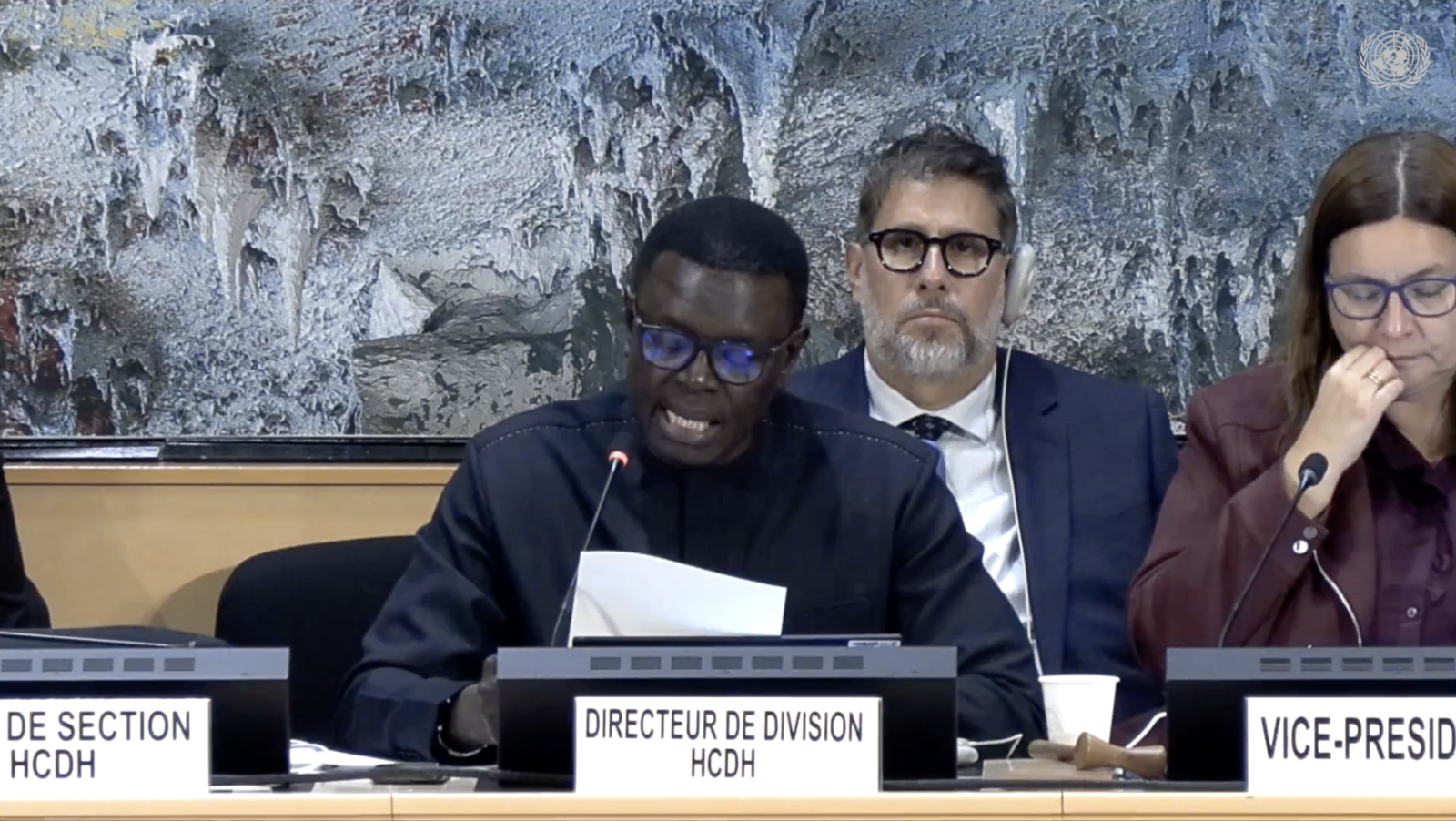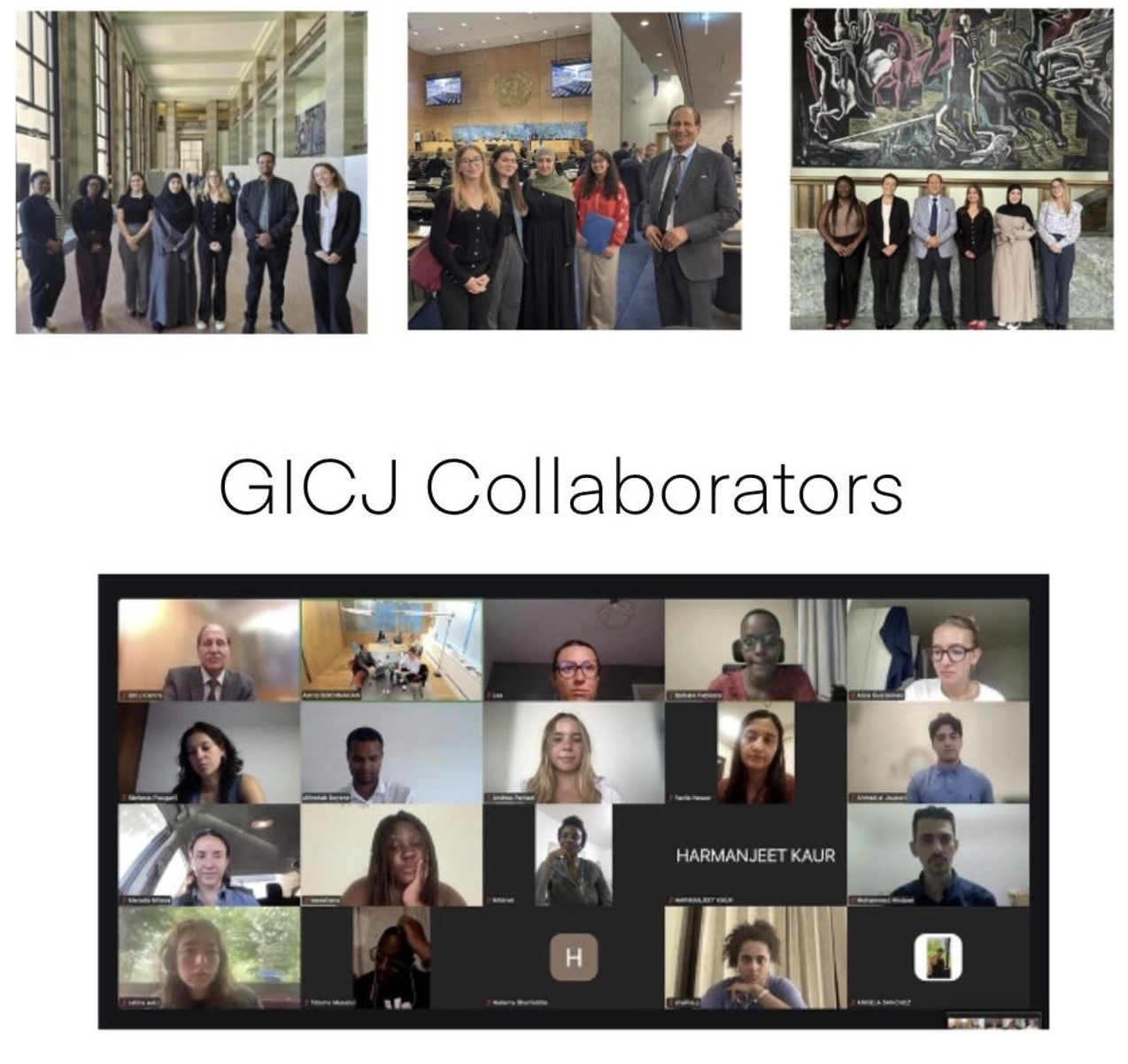HRC 60: GICJ Full Session Report
From 8 September to 8 October 2025, the United Nations Human Rights Council held its 60th session at the Palais des Nations in Geneva, Switzerland. At a time when the world was facing increasing geopolitical tension, where conflicts are multiplying and human rights violations are widely committed, the Council served as an essential platform to discuss, analyse and propose concrete solutions and recommendations to address these global challenges.
In total, at its 60th session, the Human Rights Council held 40 interactive dialogues, 5 panel discussions, 16 Universal Periodic Review (UPR) outcome adoptions, and 1 urgent debate, following the unjustified Israeli attack on Doha on 9 September, which prompted immediate concern and calls for accountability. At the end of the session, the Council also adopted 38 resolutions.
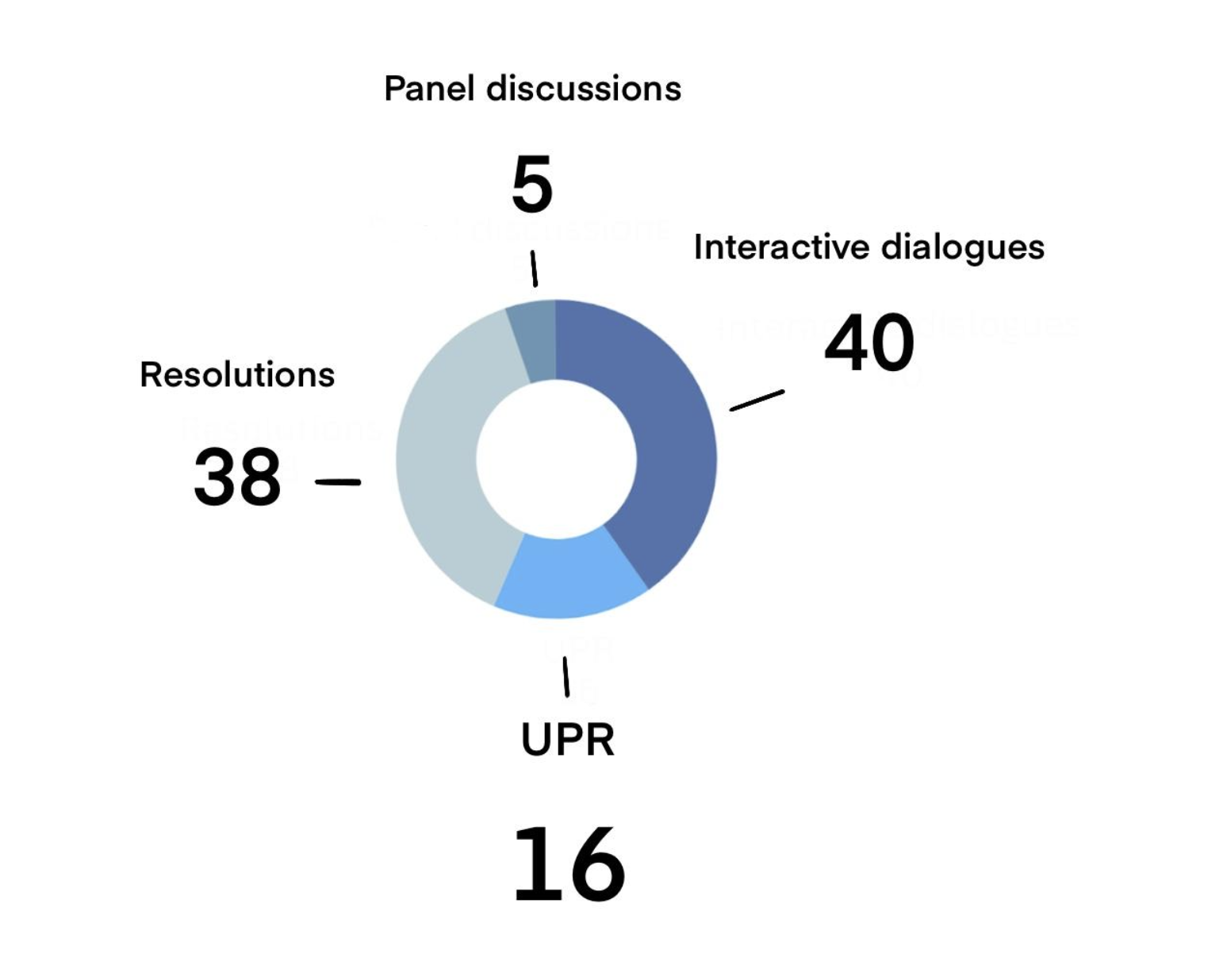
The main topics addressed included the situation in the Middle East, particularly the Israeli war on Gaza and its violations to the fundamental rights of the Palestinian people and the complicity of States and private companies in the ongoing genocide in Gaza. The Council also discussed the persistent internal conflicts in Sudan and the Democratic Republic of the Congo, where women and children are facing extreme danger due to continuous human rights violations. Discussions were also held on the war between Ukraine and Russia as well as the devastating situation in Yemen. Special attention was given to women’s rights, the impact of armed conflict on education and development, and the consequences of budget cuts on the financing of United Nations mandates.
Geneva International Centre for Justice (GICJ) actively participated in the session, closely following the most relevant debates and attending numerous side events, which provided valuable insight into the situation of communities affected by wars, particularly in Sudan and Palestine. In collaboration with its partner NGOs, GICJ delivered 23 oral statements, on issues including Palestine, Yemen, slavery, Burundi, Guinea-Bissau, Spain, Lesotho, and the fight against racial discrimination. The team also attended several interactive dialogues, producing 20 discussion reports summarising both the Special Rapporteurs’ findings and the positions of States.
It is important to recall that NGOs play a major role within the Human Rights Council. They bring independent perspectives to the debate and often reveal facts and violations that are hidden or ignored by the international community. By providing a voice to marginalised populations and victims who cannot speak for themselves, NGOs contribute to exposing the reality of conflicts and genocides, offering first-hand expertise and documentation of grave human rights abuses. Their work is essential to advancing truth, justice, reparation for victims and lasting peace.
The list below represents the permanent agenda items of the Human Rights Council in its 3 regular sessions. Under each item, several topics are discussed in each session.
- Organisational and procedural matters.
- Annual report of the United Nations High Commissioner for Human Rights and reports of the Office of the High Commissioner and the Secretary-General.
- Promotion and protection of all human rights, civil, political, economic, social and cultural rights, including the right to development.
- Human rights situations that require the Council’s attention.
- Human rights bodies and mechanisms.
- Universal periodic review.
- Human rights situation in Palestine and other occupied Arab territories.
- Follow-up to and implementation of the Vienna Declaration and Programme of Action.
- Racism, racial discrimination, xenophobia and related forms of intolerance: follow-up to and implementation of the Durban Declaration and Programme of Action.
- Technical assistance and capacity-building.
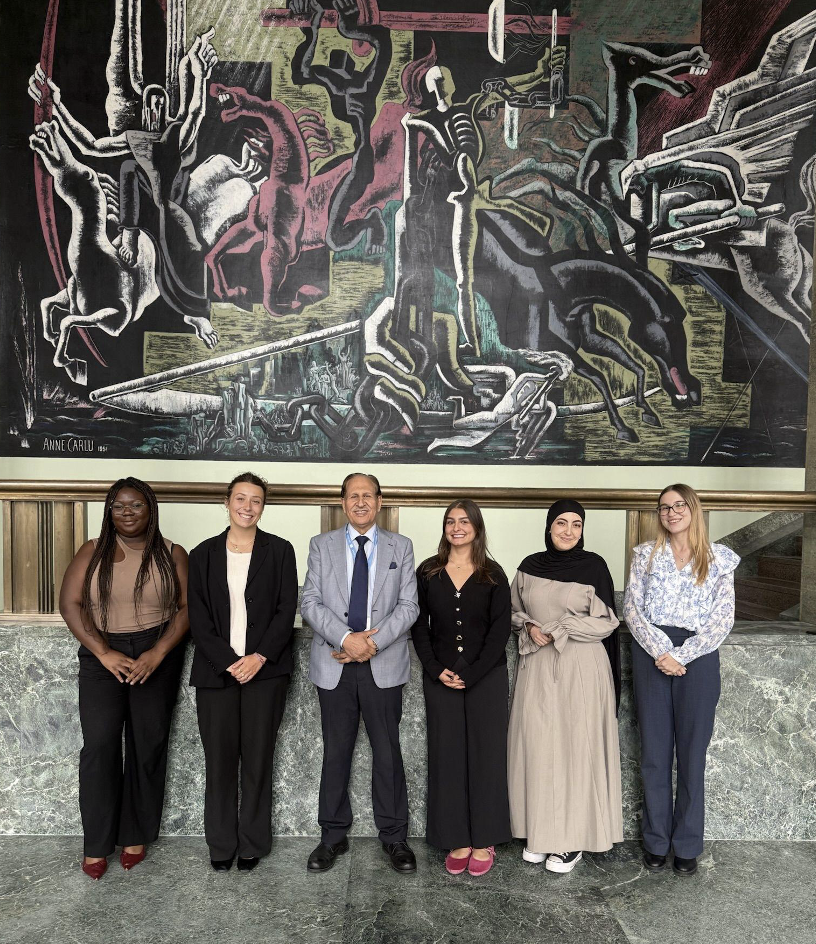
Our team members had the opportunity to deepen their understanding of global challenges and to observe firsthand the role played by the United Nations in facilitating dialogue, fostering exchange and contributing to conflict resolution. Through its engagement at the 60th session of the Human Rights Council, GICJ provided valuable opportunities not only to in-person interns and volunteers but also to those participating remotely from different continents around the world.
𝐇𝐑𝐂𝟔𝟎 : 𝐔𝐍 𝐇𝐮𝐦𝐚𝐧 𝐑𝐢𝐠𝐡𝐭𝐬 𝐂𝐨𝐮𝐧𝐜𝐢𝐥 𝐊𝐢𝐜𝐤𝐬 𝐎𝐟𝐟 𝟔𝟎𝐭𝐡 𝐒𝐞𝐬𝐬𝐢𝐨𝐧 𝐢𝐧 𝐆𝐞𝐧𝐞𝐯𝐚
"𝘏𝘶𝘮𝘢𝘯 𝘳𝘪𝘨𝘩𝘵𝘴, 𝘢𝘭𝘭 𝘩𝘶𝘮𝘢𝘯 𝘳𝘪𝘨𝘩𝘵𝘴, 𝘢𝘳𝘦 𝘵𝘩𝘦 𝘴𝘰𝘭𝘪𝘥 𝘧𝘰𝘶𝘯𝘥𝘢𝘵𝘪𝘰𝘯𝘴 𝘰𝘧 𝘧𝘭𝘰𝘶𝘳𝘪𝘴𝘩𝘪𝘯𝘨 𝘴𝘰𝘤𝘪𝘦𝘵𝘪𝘦𝘴. 𝘛𝘩𝘦𝘺 𝘢𝘳𝘦 𝘵𝘩𝘦 𝘣𝘰𝘯𝘥𝘴 𝘰𝘧 𝘵𝘳𝘶𝘴𝘵 𝘣𝘦𝘵𝘸𝘦𝘦𝘯 𝘱𝘦𝘰𝘱𝘭𝘦 𝘢𝘯𝘥 𝘵𝘩𝘦𝘪𝘳 𝘨𝘰𝘷𝘦𝘳𝘯𝘮𝘦𝘯𝘵𝘴, 𝘵𝘩𝘦𝘺 𝘢𝘳𝘦 𝘢 𝘣𝘦𝘢𝘤𝘰𝘯 𝘰𝘧 𝘩𝘰𝘱𝘦 𝘪𝘯 𝘵𝘩𝘦 𝘴𝘦𝘢𝘳𝘤𝘩 𝘧𝘰𝘳 𝘢 𝘣𝘦𝘵𝘵𝘦𝘳 𝘸𝘰𝘳𝘭𝘥 𝘵𝘩𝘢𝘵 𝘳𝘦𝘫𝘦𝘤𝘵𝘴 𝘷𝘪𝘰𝘭𝘦𝘯𝘵 𝘤𝘰𝘯𝘧𝘭𝘪𝘤𝘵, 𝘣𝘳𝘶𝘵𝘢𝘭𝘪𝘵𝘺 𝘢𝘯𝘥 𝘪𝘯𝘫𝘶𝘴𝘵𝘪𝘤𝘦."
These words were at the heart of the first meeting of the 60th session of the United Nations Human Rights Council on 8 September 2025, as the High Commissioner for Human Rights, Volker Türk, presented his annual report. He highlighted alarming trends worldwide: escalating conflicts, systematic repression, and the erosion of international law. From Ukraine to Sudan, Myanmar to Gaza, civilians face arbitrary detention, torture, and attacks on essential infrastructure. Simultaneously, civic space and freedom of expression are increasingly restricted worldwide.
The High Commissioner warned that the retreat from multilateral frameworks undermines global human rights protection, stressing that sovereignty carries responsibility: governments must uphold the rights of all their citizens. He also denounced ongoing attacks against the international order and the UN system, including the International Criminal Court and the 2030 Agenda for Sustainable Development.
Despite these challenges, some positive steps were acknowledged such as several states recently ratified key human rights treaties, abolished the death penalty for certain crimes, or renewed engagement with UN special procedures. The High Commissioner also called for stronger collaboration with civil society, philanthropy, and local authorities to reinforce the human rights ecosystem and respond to abuses effectively.
Geneva International Centre for Justice (GICJ) reiterates that protecting human rights is a collective duty. States and the international community must act decisively to ensure accountability, safeguard civilians, and strengthen human rights mechanisms. Upholding these rights universally is essential for justice, peace, and sustainable development. We urge all member states to take the needed decisions in this session of the Human Rights Council to alleviate the suffering of the victims of human rights violations around the world.
During the 60th session of the Council, GICJ team had the opportunity to deliver 22 oral statements both in person and through video. The statements focused on the situations in Palestine, Sudan, Burundi, CDR, Spain, Lesotho, Guinea-Bissau, enforced disappearances and on contemporary forms of slavery.
The statements were delivered under the following agenda items:
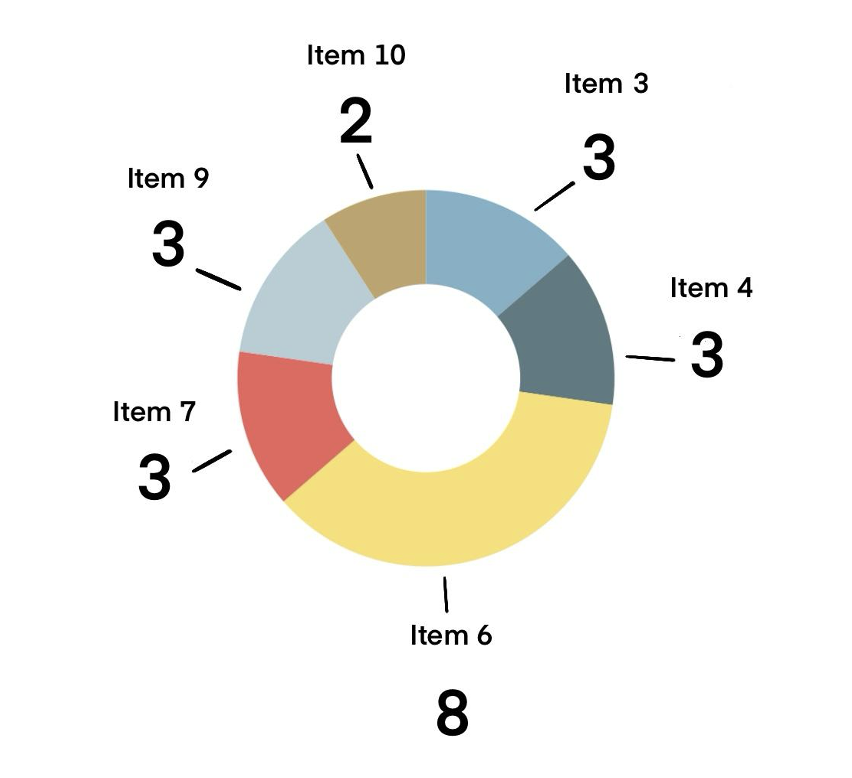
- Item 3: Interactive dialogue with the Special Rapporteur on contemporary forms of slavery
- Item 3: Interactive dialogue with Working Group on enforced disappearances
- Item 3: General Debate on the promotion and protection of all human rights, civil, political, economic, social and cultural rights, including the right to development.
- Item 4: Interactive dialogue with the Special Rapporteur on Burundi
- Item 4: General Debate on Human rights situations
- Item 6: UPR outcome of Kiribati
- Item 6: UPR outcome of Sweden
- Item 6: UPR outcome of Lesotho
- Item 6: UPR outcome of Guinea-Bissau
- Item 6: UPR outcome of Spain
- Item 7: General debateon the Human rights situation in Palestine and other occupied Arab territories
- Item 9: ID with WG on People of African Descent
- Item 9: Interactive dialogue with the Working Group on People of African Descent
- Item 9: Enhanced ID with HC and International Independent Expert Mechanism to Advance Racial Justice and Equality in Law Enforcement
- Item 10: Interactive dialogue with independent Expert on Central African Republic
- Item 10: with IE on Central African Republic
Agenda Item 3
Interactive dialogue with the Special Rapporteur on contemporary forms of slavery
All Member States must Confront the Root Causes of Child Labour
Joint Statement on behalf of International-Lawyers.Org, International Organization for the Elimination of All Forms of Racial Discrimination (EAFORD), Association Ma’onah for Human Rights and Immigration, and GICJ
12 September 2025
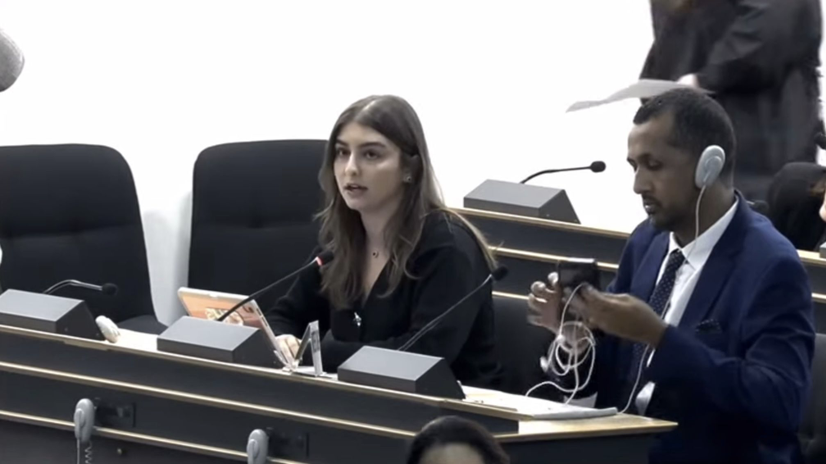
Delivered by Elena Hadad / GICJ
In the joint statement, GICJ and its partners emphasised that holding perpetrators accountable is essential to upholding international norms that recognise children not as labourers, but as full rights-holders whose dignity must never be commodified. They underscored that the persistence of child labour undermines children’s rights and blocks progress toward SDG 8.7. Ending these abuses requires not only stronger commitments but also accountability for those exploiting children in business sectors, informal economies, and armed conflicts. The statement urged all member states to confront the root causes of child labour, break cycles of poverty and discrimination, and ensure the full implementation of the Durban Declaration and Plan of Action to eradicate both racism and slavery in all their forms.
Interactive dialogue with Working Group on enforced disappearance
The continued Human rights violations faced by the Yemeni People
Joint Statement on behalf of the International Organization for the Elimination of All Forms of Racial Discrimination (EAFORD), Association Ma’onah for Human Rights and Immigration, and GICJ
17 September 2025
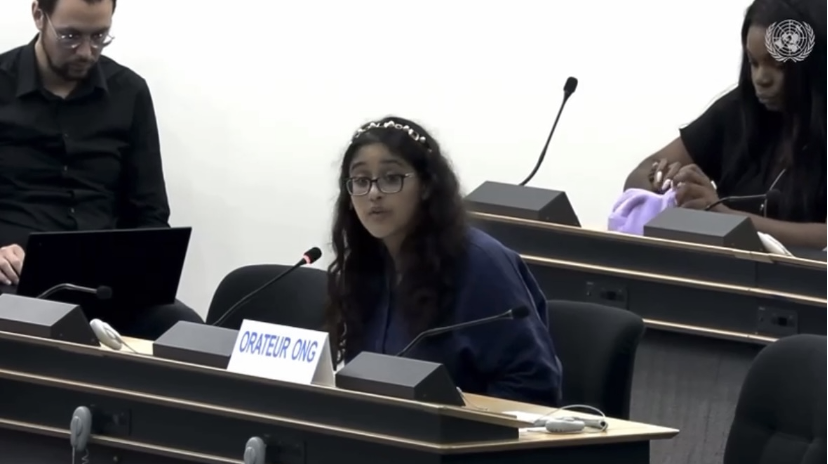
Delivered by Arwa Akbar / GICJ
“Children are taught to hold weapons when they should be holding their Mothers’ hands,” Arwa exclaimed as she contextualised the ongoing human rights crisis in Yemen. Her statement sought to advocate for the dignity and rights of the Yemeni people. She highlighted several instances of human rights breaches by the Houthis; including the abduction of Yemeni political figures, such as the 13 members affiliated with the General People’s Congress, the abduction of UN authorities and the abduction of children to be used as soldiers. She concluded by highlighting the Working Group’s meaningful work and encouraging it to continue its mandate in supporting the Yemeni people by monitoring the situation in the country and aiding in establishing effective mechanisms.
General Debate on the promotion and protection of all human rights, civil, political, economic, social and cultural rights, including the right to development
No Human Rights without Palestinian Rights
Joint statement on behalf of Union of Arab Jurists and GICJ
19 September 2025
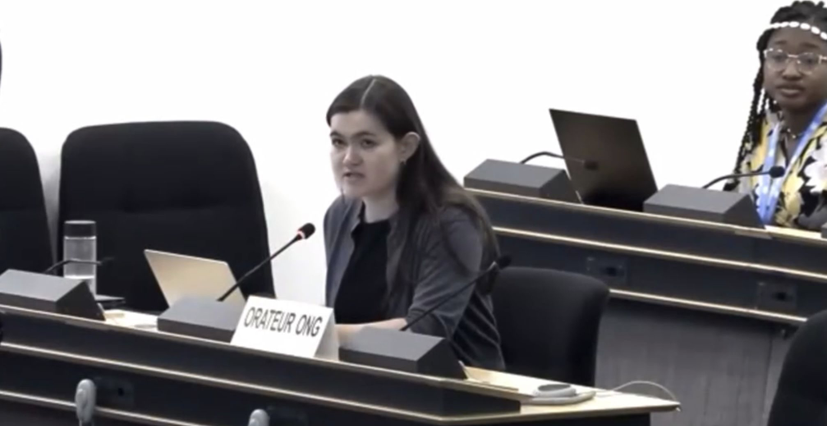
Delivered by Astrid Bochnakian / GICJ
In the joint statement, GICJ and its partners reaffirmed that “the effective promotion of all human rights cannot be dissociated from efforts to combat apartheid and to uphold the right to self-determination for all.” Astrid condemned the constant violations of the fundamental rights of the Palestinians living under Israeli occupation, exacerbated by Israel’s apartheid regime. She urged Member States to uphold their legal and moral responsibilities by addressing Israel’s ongoing violations against Palestinians, from restrictions on health, education and liberty to the targeting of journalists, and to ensure that accountability is not applied selectively.
Agenda Item 4
Interactive dialogue with the Special Rapporteur on Burundi
Calling for Accountability and Rights in Burundi
Joint statement on behalf of the International Organisation for the Elimination of All Forms of Racial Discrimination (EAFORD), Union of Arab Jurists, and GICJ
19 September 2025
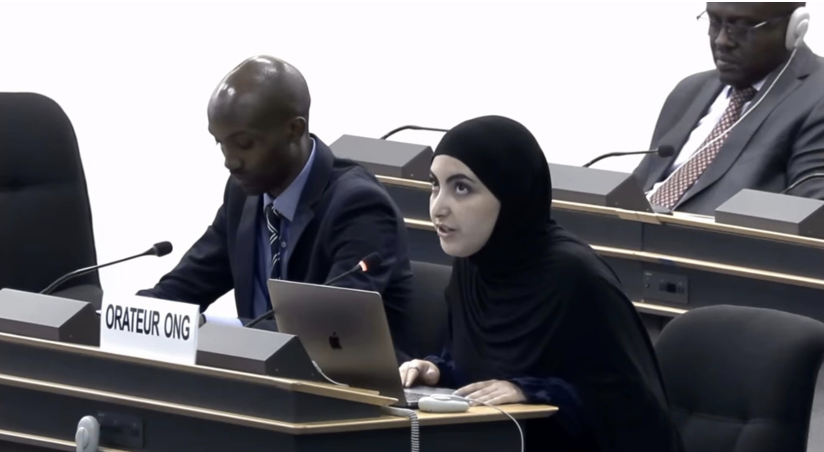
Delivered by Haliema Sharfeddine / GICJ
In the joint statement, GICJ and its partners pointed out the alarming restrictions on fundamental freedoms, ongoing human rights abuses and entrenched impunity in Burundi, underscoring the urgent need for institutional reform and humanitarian response. Haliema underlined the lack of independence of the judiciary, the loss of credibility of the Human Rights Commission, and the politicisation of the Truth and Reconciliation Commission. Meanwhile, Burundians continue to face food insecurity, collapsing health services, and violations of the rights of women, children, and refugees. The statement called on the Burundian authorities to fully cooperate with the Special Rapporteur, release those arbitrarily detained, guarantee fair elections, reform repressive legislation and establish credible mechanisms to ensure justice and accountability.
Burundi Crisis: Justice and Protection must come first
Joint statement on behalf of Association Ma’onah for Human Rights and Immigration, and GICJ
19 September 2025
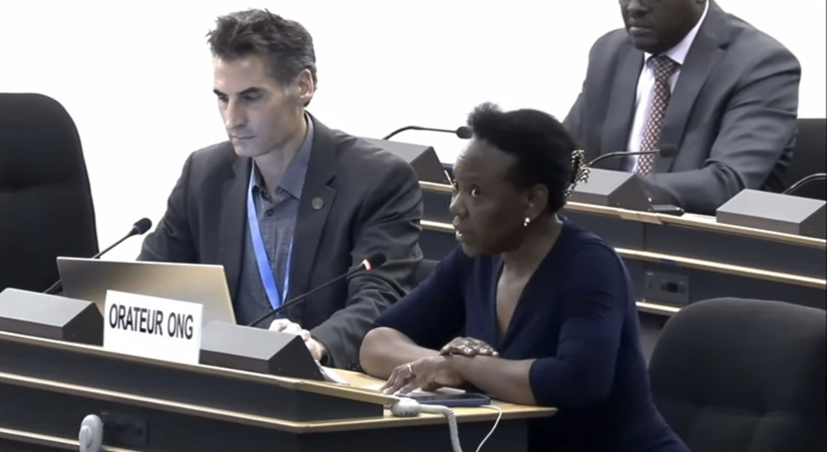
Delivered by Patricia Mutebi Jjuuko / GICJ
In the joint statement, GICJ and its partners urged Burundi to establish the long-overdue National Preventive Mechanism against Torture and ensure protection of all refugees and asylum seekers without discrimination. Patricia’s statement highlighted reports of torture and the killing of three detainees in Cibitoke without any independent investigation, as well as the deteriorating humanitarian situation marked by the arrival of over 67,000 Congolese refugees since February 2025. She drew attention to discriminatory practices targeting Banyamulenge and Tutsi communities, and arbitrary arrests of Congolese students in Bujumbura, all noted as violations of Burundi’s international obligations. She concluded her statement by asking the Special Rapporteur what further steps the Human Rights Council and international community can take to ensure accountability in the absence of independent national investigations.
General Debate on Human rights situations that require the Council’s attention.
Justice and Accountability must come now
Joint statement on behalf of Union of Arab Jurists, International-Lawyers.Org, International Organization for the Elimination of All Forms of Racial Discrimination (EAFORD), Association Ma’onah for Human Rights and Immigration, and GICJ
23 September 2025
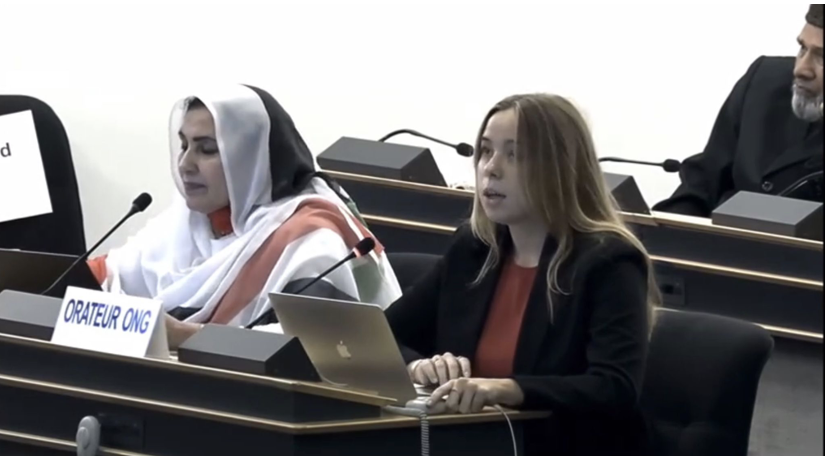
Delivered by Andrea Pantanzi / GICJ
In the joint statement, GICJ and its partners highlighted the worsening situation in Gaza, where civilians are being killed or forcibly displaced, and welcomed the UN Commission of Inquiry’s report confirming genocide against Palestinians. Andrea stressed that these acts impose a legal obligation on all States to prevent genocide, ensure accountability, and protect civilians. Andrea called on the Council and UN Member States to act immediately, implement the Commission’s recommendations, and hold those responsible accountable. Justice and humanity demand nothing less.
Agenda Item 6
UPR outcome of Kiribati
Human Rights in face of Climate Crisis
Joint statement on behalf of Union of Arab Jurists, Association Ma’onah for Human Rights and Immigration, International-Lawyers.Org, and GICJ
25 September 2025
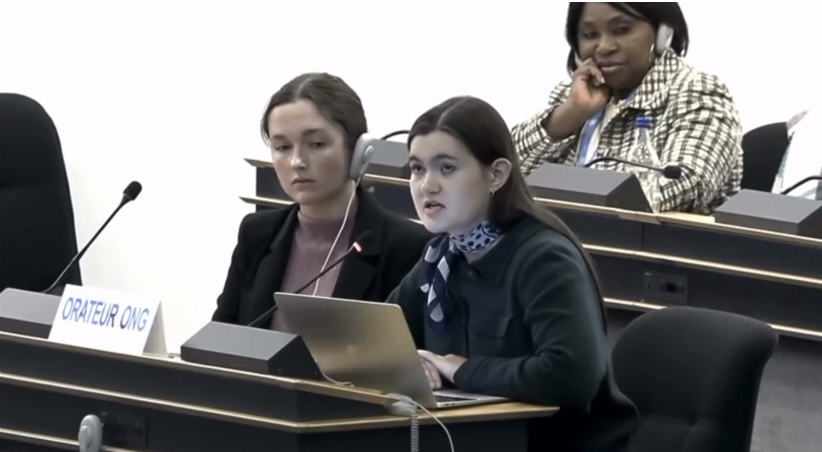
By Astrid Bochnakian / GICJ
In the joint statement, GICJ and its partners welcomed Kiribati’s constructive engagement with international human rights mechanisms and its efforts to translate international commitments into national action while respecting customary and traditional practices. It also encouraged Kiribati to further its commitment by acceding to the International Covenants on Civil and Political Rights and on Economic, Social and Cultural Rights. The statement stressed the importance of strengthening fundamental rights in light of Kiribati’s unique vulnerability as a low-lying island nation at the frontline of climate change. Astrid stressed that, by linking human rights protection with climate resilience, Kiribati demonstrates how international solidarity and cooperation are vital to ensuring that no State is left behind in the face of the climate crisis.
Progress achieved yet further action needed
Joint statement on behalf of International-Lawyers.Org, Association Ma’onah for Human Rights and Immigration, Union of Arab Jurists and GICJ
25 September 2025
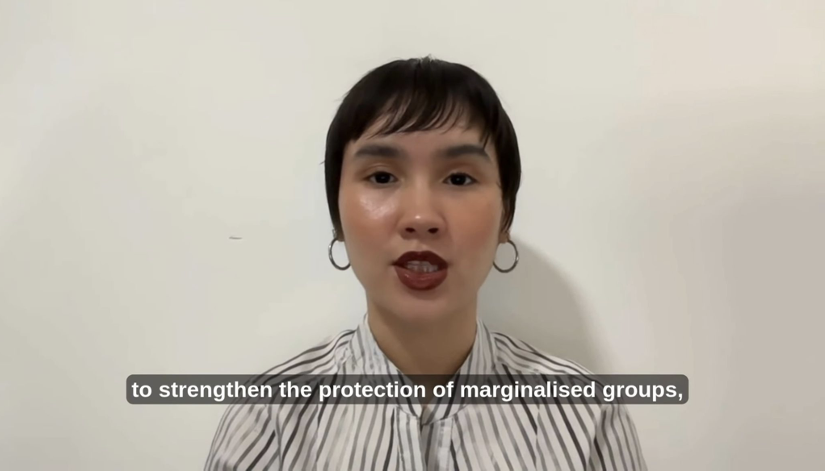
Delivered by Elisa Goislard Nguyên / GICJ
In the joint statement, GICJ and its partners praised Kiribati for its continued engagement with the UPR process and highlighted notable progress since the last review. In particular, Elisa commended important legislative reforms to protect marginalised groups, including women, such as the amendments to the Family Peace Act (2014) and the Peaceful Village Project in South Tarawa. She also welcomed measures to combat child labour and prostitution, as well as enhanced protections for migrant workers through cooperation with the International Labour Organisation. Kiribati’s accession to the Rome Statute and the Convention against Torture in 2023 was underlined as a historic milestone, reflecting its commitment to international standards. At the same time, Elisa expressed concern over the persistence of sexual and gender-based violence, limited constitutional safeguards for women, and discriminatory nationality laws. She urged Kiribati to reinforce civil rights, expand support for human rights mechanisms, and ensure inclusive engagement with civil society.
UPR outcome of Sweden
Racism, Discrimination and Legal Gaps
Joint statement on behalf of Union of Arab Jurists, Association Ma’onah for Human Rights and Immigration, International-Lawyers.Org, and GICJ
26 September 2025
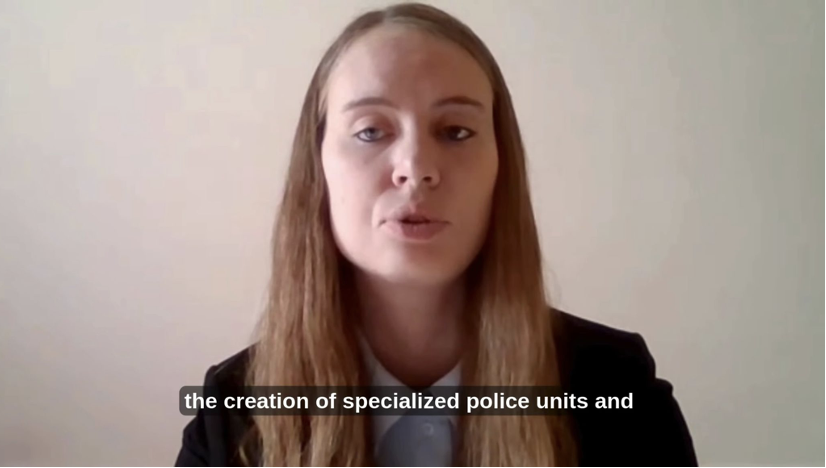
Delivered by Muriel Imhof / GICJ
In the joint statement, GICJ and its partners emphasised that the UN Human Rights Council’s Universal Periodic Review (UPR) functions as an important checkpoint in the global system of accountability and human rights and welcomed Sweden’s efforts to implement the recommendations from 2020. Muriel highlighted that discrimination, racism, incidents targeting ethnic minorities, and migrants, remain areas where laws and measures are in place, but enforcement, prevention, and social awareness need more work. She urged Sweden to strengthen legal protections by ratifying key international conventions and to close legal gaps in domestic law. As pro-Palestinian activists in Sweden continue to face harassment and intimidation, and with the UN Commission of Inquiry confirming genocide against Palestinians, Muriel emphasised the urgent need for Sweden to reassess and update its position.
From Commitment’s to Action’s
Joint statement on behalf of International-Lawyers.Org, Union of Arab Jurists, Association Ma’onah for Human Rights and Immigration (AMHRI), and GICJ
26 September 2025
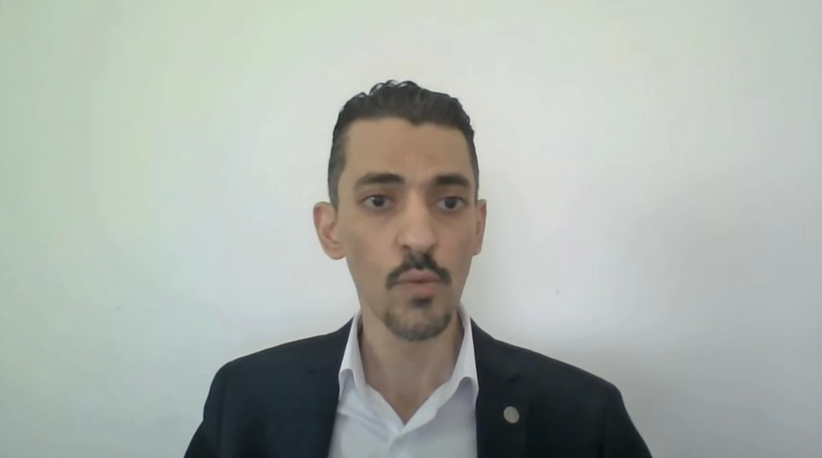
Delivered by Mohammed Hindawi / GICJ
In the joint statement, GICJ and its partners commended Sweden’s efforts to implement recommendations from the Universal Periodic Review (UPR), particularly in combating racism and hate speech, protecting minority rights, and repatriating Sami remains and cultural objects. At the same time, the organisations criticised Sweden’s decision to withdraw funding from UNRWA, warning that this risks deepening the humanitarian crisis for Palestinian refugees and undermines Sweden’s reputation as a defender of human rights. They also expressed concern about restrictions placed on Palestinian human rights organisations, which reinforce systemic injustice and weaken Sweden’s credibility as a global advocate for rights. Finally, Mohammed urged Sweden to respect and protect the voices of pro-Palestine activists from intimidation, especially in light of the International Commission of Inquiry’s confirmation of genocide against the Palestinian people. He called on Sweden to align its actions with its stated commitments, stand with oppressed peoples everywhere, and uphold the principles of international law and the equal dignity of all peoples.
UPR outcome on Lesotho
Gender Equality and Justice
Joint statement on behalf of International-Laywers.Org, Association Ma’onah for Human Rights and Immigration, the International Organisation for the Elimination of All Forms of Racial Discrimination (EAFORD),Union of Arab Jurists, and GICJ
26 September 2025
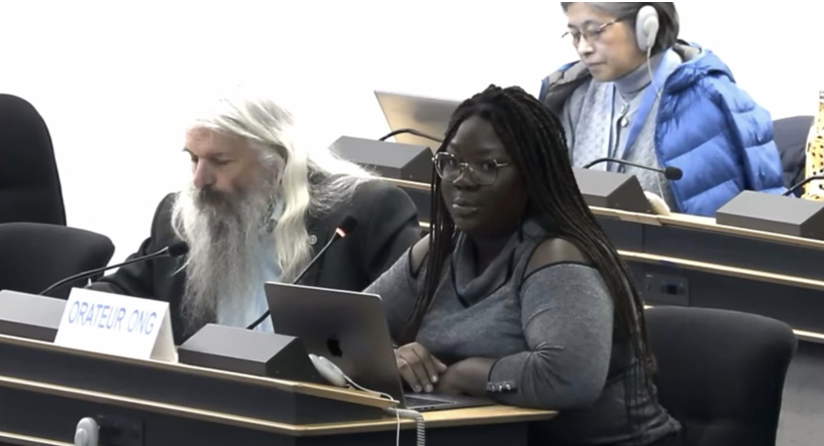
Delivered by Rose Atieno / GICJ
In the joint statement, GICJ and its partners urged the government of Lesotho, to take measures in tackling the gender-based violence within their country as this continues to be a grave issue within the country with women and girls being at the forefront of targeted violence. In addressing the moratorium on the death penalty, she urged the government to implement the full abolishment of the death penalty into law to eliminate all possibility of abuse of the gap within the legislation. Finally, she addressed the shrinking space for civil society involvement noting the importance of the role of creating space for such societies and independent actors such as their role in promoting human rights and enhancing governance.
UPR outcome on Guinea-Bissau
Progress with Critical Gaps in Rights Protection
Joint statement on behalf of International-Lawyers.Org, Association Ma’onah for Human Rights and Immigration, Union of Arab Jurists, and GICJ
26 September 2025
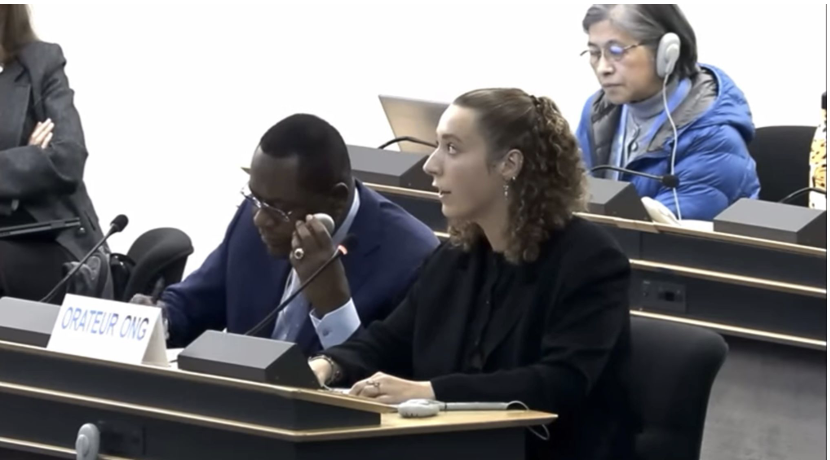
Delivered by Léa Farge / GICJ
In the joint statement, GICJ and its partners commended Guinea-Bissau for its anti-corruption efforts but concerns remain over restrictions on freedoms of expression, assembly, and the press. Urgent action is needed to address gender-based violence, including the widespread practice of female genital mutilation. The implementation of the National Strategy to eliminate female genital mutilation and setting 18 as the minimum marriage age were strongly urged. Despite progress in education, access remains unequal, especially for girls. The statement called on Guinea-Bissau to strengthen its legal framework and fully implement UN recommendations.
Progress made, but a lot still needs to be done
Joint statement on behalf of Union of Arab Jurists and GICJ
26 September 2025
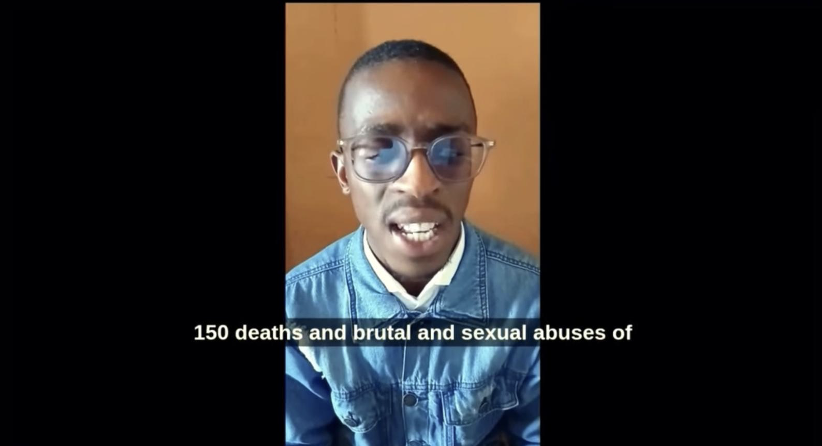
Delivered by Teboho Mosebo / GICJ
In the joint statement, GICJ and its partners acknowledged Guinea-Bissau’s adoption of key human rights laws and its acceptance of most UPR recommendations, reflecting strong cooperation with international mechanisms. Teboho, however, expressed concern over the persistent challenges and obstacles hindering progress, including continued restrictions on political and civil rights such as freedom of speech, the press, and assembly, as well as reports of enforced disappearances. He further condemned the widespread exploitation of children in economic activities and the alarming dropout rates in both primary and secondary education. He urged the State to intensify efforts to combat enforced disappearances and to strengthen support for Civil Society Organisations in promoting a culture of free expression. Finally, he called on the authorities to eliminate child labour and to continue implementing the National Education Plan to address the high school dropout rates.
UPR outcome on Spain
Progress Recognised, Further Steps Encouraged
Joint statement on behalf of Union of Arab Jurists, Association Ma’onah for Human Rights and Immigration, International-Lawyers.Org, and GICJ
26 September 2025
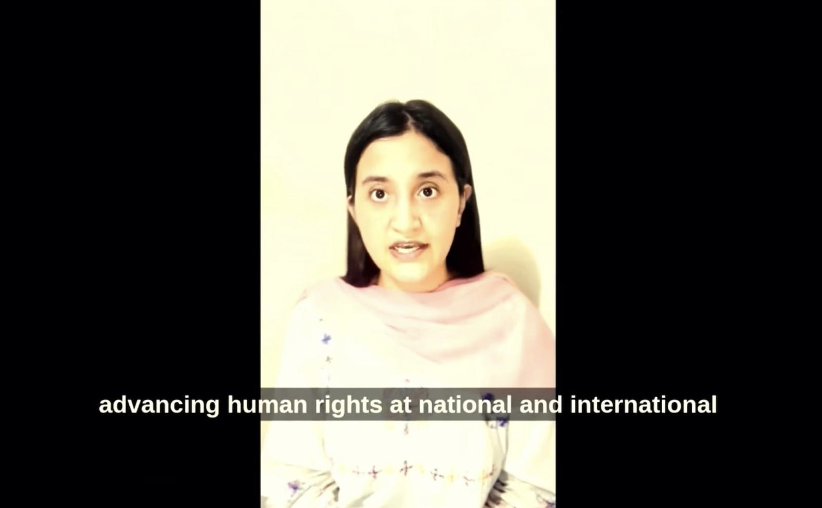
Delivered by Fazila Nawaz / GICJ
In the joint statement, GICJ and its partners welcomed Spain’s constructive engagement with the UPR process and acknowledged the significant progress achieved since its previous review. Spain’s principled leadership at the international level was also recognised, notably through its ratification of the Convention on the Prevention and Punishment of the Crime of Genocide and its consistent support for the rights of the Palestinian people. At the same time, the statement drew attention to the recommendations made by the State of Palestine, encouraging Spain to continue its efforts to fulfil its responsibilities as a third State in relation to internationally wrongful acts, particularly in the prevention of genocide, to strengthen measures to combat racism, xenophobia, and intolerance, and to redouble efforts to expand educational infrastructure in rural areas.
Agenda Item 7
General debate on the Human rights situation in Palestine and other occupied Arab territories
Justice over Geopolitics: Gaza Cannot Wait
Joint statement on behalf of Association Ma’onah for Human Rights and Immigration, the International Organisation for the Elimination of All Forms of Racial Discrimination (EAFORD), Union of Arab Jurists, and GICJ
30 September 2025
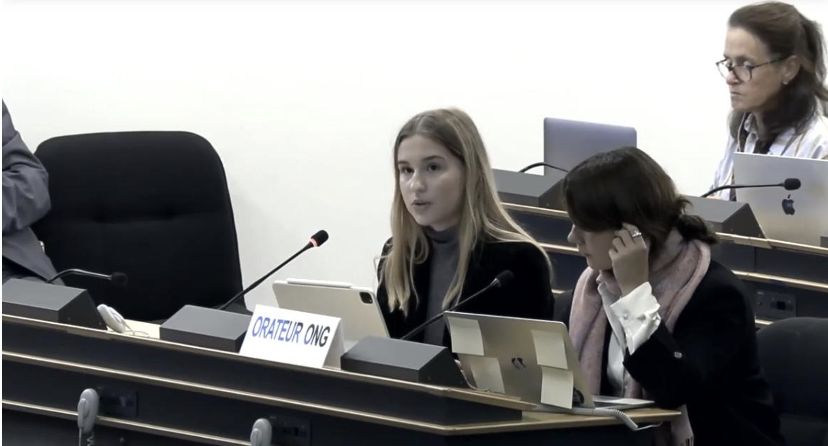
Delivered by Sonia Darrieumerlou / GICJ
In the joint statement, GICJ and its partners raised urgent concerns over the deepening humanitarian catastrophe in Gaza and the role of ongoing military and economic support in sustaining the violence. Sonia questioned, “How can we still debate legality when lives are being lost by the thousands?”. She stressed that the continued transfer of weapons and financial aid to the occupying power exacerbates the suffering on the ground and may amount to serious violations of international law. Civilian infrastructure, including homes, schools, and hospitals, continues to be systematically destroyed, while reconstruction efforts appear to serve not Palestinian recovery but settlement expansion. She urged states to uphold their legal and moral obligations by ending all forms of complicity and moving from inaction to accountability. With credible allegations of genocide now under international scrutiny, she warned that silence and delay can no longer be justified.
NOT “business as usual”
Joint statement on behalf of International-Lawyers.Org, Association Ma’onah for Human Rights and Immigration, the International Organisation for the Elimination of All Forms of Racial Discrimination (EAFORD), and GICJ
30 September 2025
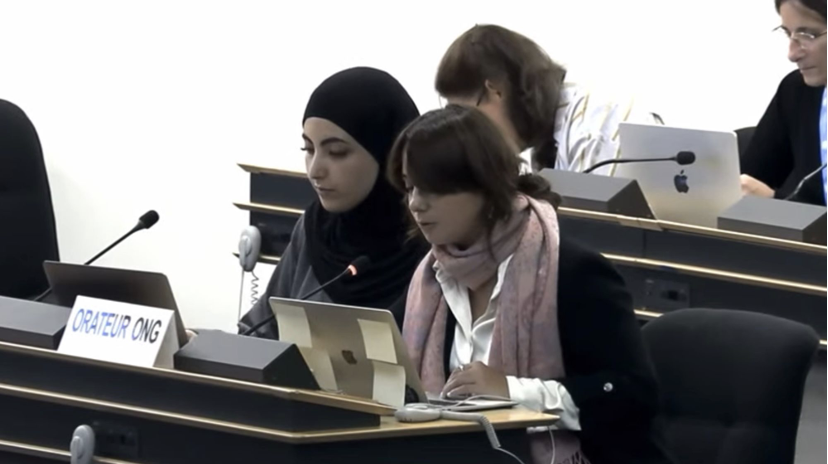
Delivered by Angela Sanchez / GICJ
In the joint statement, GICJ and its partners welcomed the developments regarding the database of businesses established pursuant to Resolution 31/36, while strongly condemning companies that continue to operate in illegal settlements. The statement stressed that by doing so, these corporations not only enable and profit from the settlements but also contribute to their persistence and expansion. Referring to the recent report of the Office of the High Commissioner (A/HRC/60/19), the statement noted that inadequate resources have hindered the timely review of pending submissions and urged the allocation of sufficient support to ensure the database’s effective maintenance. Expressing a sense of urgency, it called for concrete action to address the findings of the 2013 Fact-Finding Mission concerning corporate involvement in the construction and expansion of settlements. Finally, Angela underscored the importance of exposing and ensuring accountability for corporate actors, emphasising that such accountability is essential to countering the ongoing human rights violations linked to corporate complicity.
Gaza faces genocidal abuses while the world hesitates
Joint statement on behalf of the International Organisation for the Elimination of All Forms of Racial Discrimination (EAFORD), International-Lawyers.Org, Association Ma’onah for Human Rights and Immigration, Union of Arab Jurists, and GICJ
29 September 2025
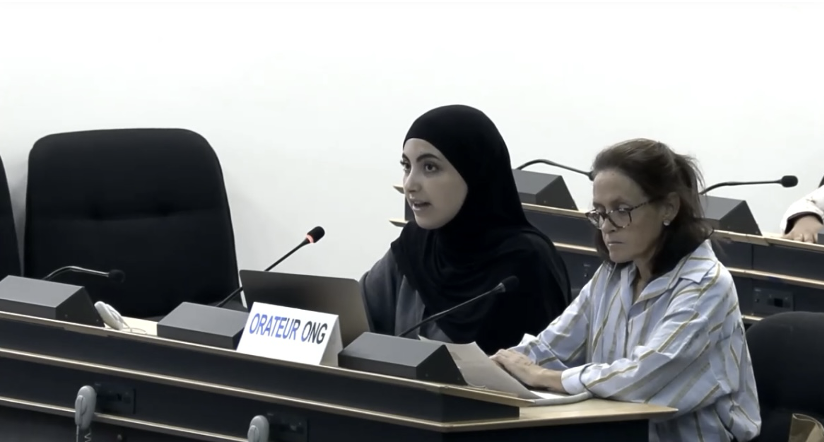
Delivered by Haliema Sharfeddine / GICJ
In the joint statement, GICJ and its partners underlined that the situation unfolding in Gaza is not simply a conflict, but the culmination of decades of injustice, amounting to genocide carried out in plain sight. Haliema stressed that the suffering of the Palestinian people has reached a breaking point. In Gaza, entire communities are being wiped out, families displaced, and essential infrastructure such as schools and hospitals destroyed under relentless bombardment. The humanitarian catastrophe is undeniable, yet the international community continues to hesitate instead of protecting lives. Haliema’s statement also drew attention to the complicity of States that continue to supply arms and fuel while providing political cover to Israel’s violations. She reminded delegates that recognising Palestine is meaningless if they are not matched by concrete measures to stop the killings, open humanitarian access, and ensure accountability.
Agenda Item 9
Interactive dialogue with the Working Group on People of African Descent
Reparatory Justice is not Charity
Joint statement on behalf of the International Organisation for the Elimination of All Forms of Racial Discrimination (EAFORD) and GICJ
1 October 2025
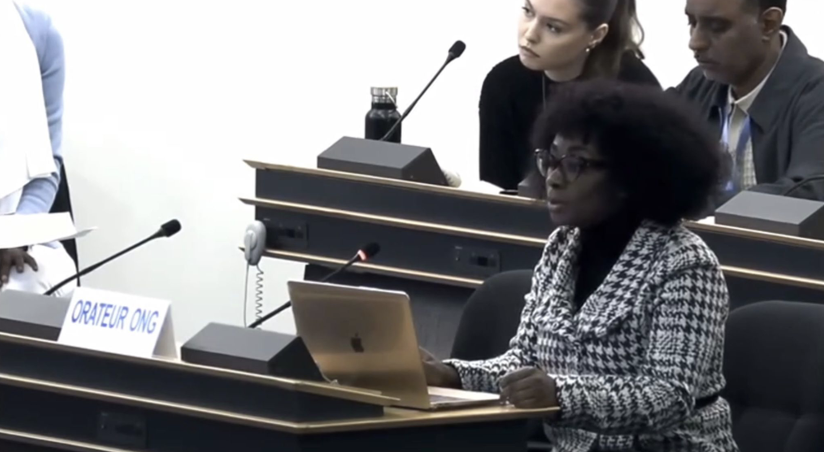
Delivered by Jamel Nampijja Sztuchlik / GICJ
In the joint statement, GICJ and its partners emphasised that the legacies of colonialism and the transatlantic slave trade continue to manifest in systemic racism, economic marginalisation, environmental injustice, and Afrophobia. She stressed that former colonial powers have largely evaded accountability. Jamel stated that the time for symbolic gestures has passed. Reparatory justice is not an act of charity; it is both a legal and moral obligation. Comprehensive reparatory justice must include compensation for centuries of exploitation, restitution of stolen lands and cultural heritage, public acknowledgement of responsibility, and guarantees of non-repetition. Jamel called on the UN and Member States to establish mechanisms for delivering reparations that involve the meaningful participation of people of African descent. Additionally, it is essential to ensure that reparatory justice processes are transparent, inclusive, and responsive to grassroots communities, particularly women and youth.
Interactive dialogue with the Working Group on People of African Descent
Black Lives are not Statistics
Joint statement on behalf of the International Organisation for the Elimination of All Forms of Racial Discrimination (EAFORD) and GICJ
1 October 2025
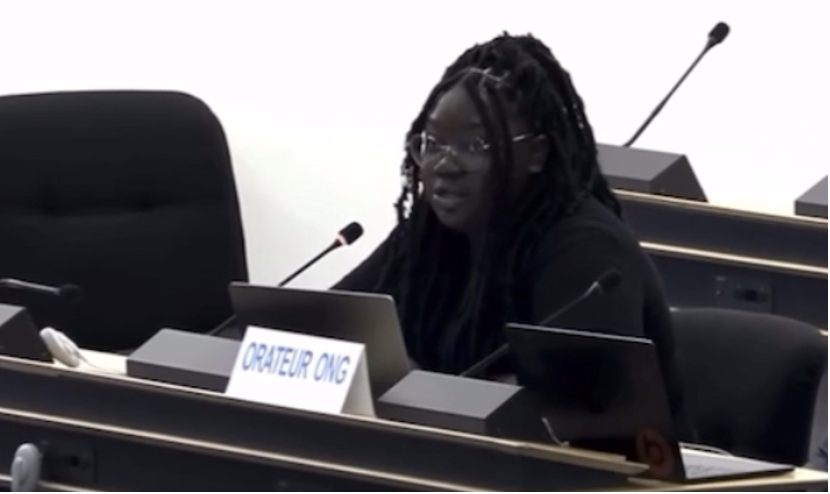
Delivered by Rose Atieno / GICJ
In the joint statement, GICJ and its partners highlighted the continued racial injustices faced by people of African descent. Despite existing protection, the justice system itself often perpetuates harm from biased stereotypes to mistreatment during trial. The tragic cases of Patrick Lyoya, Sonya Massy, and many others stand as painful reminders of the consequences of systemic discrimination and excessive use of force. Rose further emphasised that human rights must apply equally to all. By urging the council and international community to push for stronger measures, including addressing prejudice at its root, ensuring fairness in judicial systems, and fully implementing the Durban Declaration and Programme of Action (DDPA). The goal of this statement was to demand accountability, structural change, and international cooperation so that black lives are not reduced to statistics but recognised and protected as equal, valued human beings.
Enhanced ID with HC and International Independent Expert Mechanism to Advance Racial Justice and Equality in Law Enforcement
Systematic Racism Demands Action: A call to Uphold the DDPA
Joint statement on behalf of the International Organisation for the Elimination of All Forms of Racial Discrimination (EAFORD) and GICJ
2 October 2025
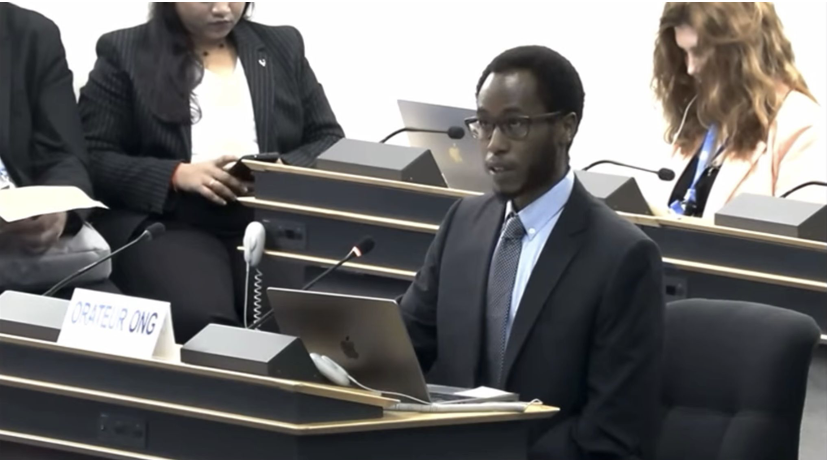
Delivered by Mutua Kobia / GICJ
In the joint statement, GICJ and its partners condemned systemic racism and urged stronger support for the DDPA, calling for funding, awareness, and integration into national policies and education. Mutua called on the UN and Member States to prioritise funding, dissemination, and translation of the DDPA, ensuring its visibility, availability and use the policymakers, educators, communities, and people of influence. He urged them to integrate it into national action plans, educational curricula, and training to address systematic racism at its roots.
Agenda Item 10
Interactive dialogue with independent Expert on Central African Republic
A Path from Conflict to Sustainable Peace
Joint statement on behalf of Association Ma’onah for Human Rights and Immigration and GICJ
2 October 2025
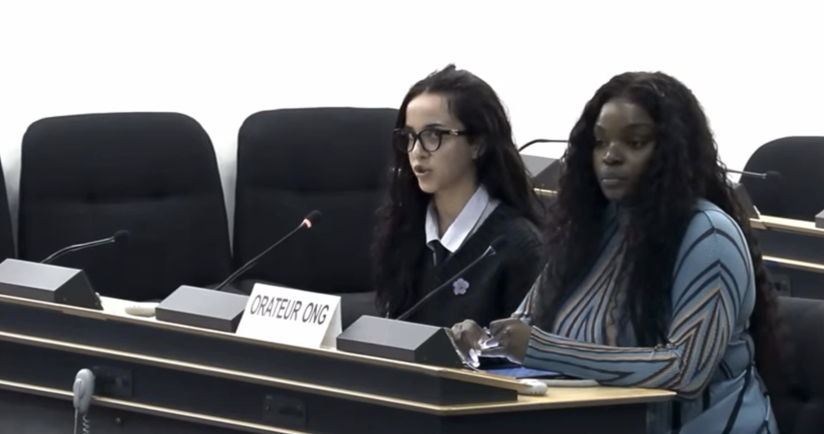
Delivered by Marcela Miteva / GICJ
In the joint statement, GICJ and its partners reminded the Council that armed groups like Wagner Ti Azandé continue to terrorise communities in Mbomou and Haut-Mbomou, committing heinous crimes against the Muslim minority, including killings, sexual violence, and torture. These actions deepen intercommunity tensions and obstruct peaceful coexistence. While Marcela commended the CAR for its judicial reforms and the disarmament of nine armed groups, she emphasised that the fight is far from over. She urged the state to continue its disarmament campaign and pursue dialogue to abolish the remaining groups. Moreover, Marcela’s statement stressed that the prison conditions, marked by overcrowding and food shortages, are alarming. She advocated for the adoption of restorative justice practices. The international community's role must evolve. Instead of broad aid, she called for an empowerment of the CAR to develop a sustainable strategy, restore its authority over resource-rich regions, and build a lasting peace for its people.
Justice and Dignity for the Central African Republic
Joint statement on behalf of the International Organisation for the Elimination of All Forms of Racial Discrimination (EAFORD) and GICJ
2 October 2025
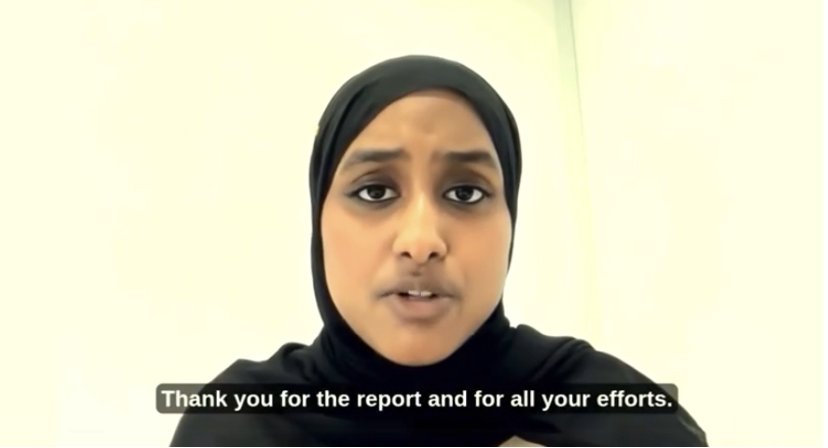
Delivered by Minna Adlan / GICJ
In the joint statement, GICJ and its partners commended the Expert’s efforts and expressed concerns over the deteriorating human rights and humanitarian situation in the Central African Republic. Minna denounced the continuous violations of international human rights and humanitarian law, stressing their impact on the dignity and future of the Central African People. She urged the international community to provide full support to the Special Criminal Court and the ICC to deliver credible justice, guarantee humanitarian corridors, press all parties to stop attacks on displaced communities, women, and children, and place victims and civil society at the centre of any peace dialogue.
Agenda item 3
Promotion and protection of all human rights, civil, political,
economic, social and cultural rights,
including the right to development
Truth and Justice for the People of Iraq
This report aims to outline human rights concerns in Iraq, particularly in relation to truth, justice, reparations, and guarantees of non-recurrence. Despite numerous recommendations from different UN human rights bodies, the Iraqi authorities have failed to fulfil their international commitments.
Serious violations persist, including arbitrary detentions, torture, enforced disappearances and the absence of effective remedies for victims. Iraq has not undertaken credible steps to establish the truth about past or ongoing violations, reflected in the systematic denial of information to families of the disappeared regarding the fate of their loved ones.
At the centre of Iraq’s human rights violations lies a justice system vulnerable to corruption. Although a judicial framework is in place, Iraq’s courts lack effectiveness, independence, transparency, and consistent respect of human rights standards. This structure prevents the achievement of justice for victims, the provision of reparations, and the implementation of measures to guarantee non-repetition.
While Iraq has ratified Convention against Torture and Other Cruel, Inhuman or Degrading Treatment or Punishment (CAT), in practice, there is no comprehensive national reparations programme addressing victims of torture, nor effective mechanisms to implement Article 14.
The articles 37 and 39 of the Convention on the Rights of the Child (CRC), ratified by Iraq in 1994, obligates states to protect children from torture, abuse, and arbitrary detention. Ratifying a convention entails fully understanding, accepting and respecting its provisions in their entirety.
Executions are carried out in large batches, with at least 100 in 2024 from the Sunni community. The withholding of information from families impedes their ability to seek truth and reparations for the violations committed.
Families of victims are left without evidence, without identification of their loved ones, and without access to justice. The right to the truth for families of the disappeared is undermined.
UNITAD was created under Security Council Resolution 2379 to support Iraq’s efforts in holding Da’esh accountable for war crimes, crimes against humanity and genocide.
Israel’s Attack on Doha: a Grave Violation Against Territorial Sovereignty and a Step Back For a Lasting Peace Deal

By Haliema Sharfeddine and Sonia Darrieumerlou / GICJ
“What message are we sending to the future generations regarding the respect of human rights and our trust and confidence in law?” questioned the Minister of State for International Corporation of Qatar.
On 9 September 2025, Israel launched an airstrike in Doha that occurred near residential areas where schools, mosques, diplomatic missions and the Political bureau of Hamas were, sparking international condemnation and raising alarm over violations of Qatar’s sovereignty. On the request of a number of member states, the Human Rights Council held an Urgent Debate on Tuesday, the 16th of September 2025.
In his opening statement, the UN High Commissioner for Human Rights Volker Türk, called the attack a serious breach of international law and an assault on diplomatic efforts for peace. He emphasised that member States must act without further delay, they are obliged to take concrete measures to end grave breaches of international law, including those identified by the International Court of Justice. This requires halting the transfer of weapons to Israel that could contribute to violations of the laws of war.
In Qatar’s statement, the government condemned the aggression as a flagrant violation of its sovereignty and a serious breach of international law and human rights. It emphasized that the attack targeted a state engaged in mediation and ceasefire efforts, directly undermining the peace process. Qatar called on the Council and the international community to hold Israel accountable and end its impunity.
The African Group represented by Ghana and the Gulf Cooperation Council (GCC) expressed solidarity with Qatar and demanded an end to impunity.
South Africa, on behalf of a cross-regional group, called the strike a violation of the UN Charter and emphasised Qatar’s key role in mediation and hostage negotiations.
The European Union fully supports Qatar’s sovereignty and condemns any violations. As a key strategic partner, Qatar plays a vital role in efforts toward a ceasefire, hostage release, and humanitarian access. The EU demands that Israel respects international law.
Many States expressed deep concern over ongoing attacks and the worsening humanitarian situation in Palestine. They condemned violence and called for an end to the blockade, urging respect for civilian protection and the right to basic needs.
Oral statement delivered during the urgent debate on Israel’s attack on Doha, Qatar
“Turning a blind eye to the Israeli aggressions undermines the foundations of justice and human rights”
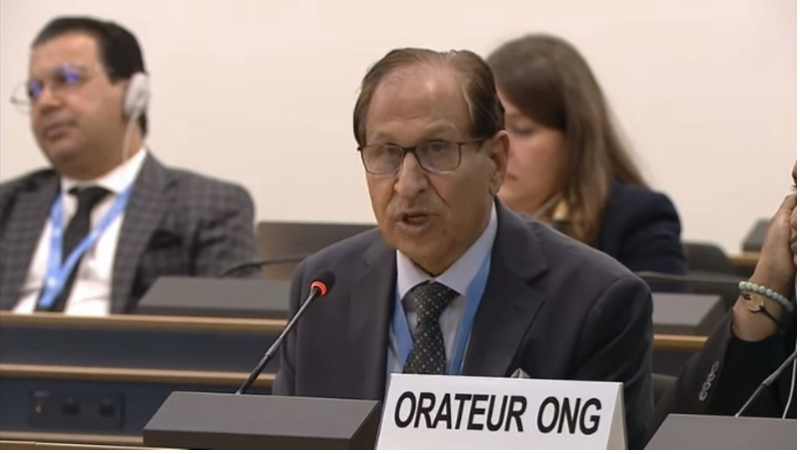
By Naji Haraj
The Human Rights Council held an Urgent Debate to discuss the recent military aggression launched by Israel against the State of Qatar on 9 September 2025. In a joint statement , Mr. Naji Haraj condemned the aggression on the State of Qatar and called on the Council to take all necessary measures to put an end to this extremist, aggressive policy that now targets everyone.
The urgent debate, which was held on 16 September 2025, witnessed an overall condemnation by UN Member States and NGOs against the Israeli aggression and its genocidal war on the Palestinian people.
Mr. Haraj stressed that the violations of international norms have reached their most appalling forms. Condemning those attacks against civilian inhabited areas, he denounced them as a blatant violation of state sovereignty and the principles of international humanitarian law
In the joint statement, he called on the Human Rights Council and the international community to condemn the aggression against Qatar, halt support for war crimes and genocide by ending arms exports to Israel, oppose the forced displacement of Palestinians, ensure the delivery of humanitarian aid blocked by Israel, and reinforce accountability through support for the International Criminal Court and international fact-finding mechanisms.
GICJ Participation in Side Events
GICJ members helped in moderating two side events during the 60th session of the Human Rights Council. These events provided a critical platform to highlight the grave human rights violations in Gaza committed by the occupying power, offering detailed insights into the humanitarian impact, the ongoing restrictions on fundamental rights, and the urgent need for international accountability and protective measures for affected communities
Side event: Palestinian Women Face Genocide’s Lasting Impact
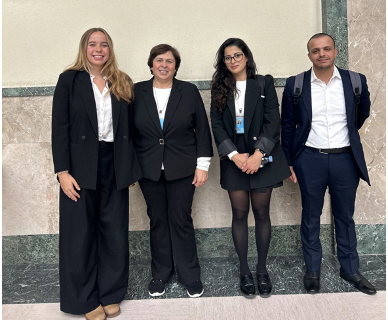
By Andrea Pantazi / GICJ
Andrea moderated a UN Side Event at the 60th Human Rights Council Session.
The event was titled: Fragmented, Starved, and Pregnant: Two Year of Genocide; the Impact on Palestinian Women in Gaza, the West Bank, and Jerusalem.
The event highlighted the devastating consequences of war and occupation on Palestinian women. Beyond the immediate violence of colonial occupation, they face long-term consequences that affect their health, safety, and families.
Randa Siniora, General Director of the Women’s Centre for Legal Aid and Counselling (WCLAC), detailed vast and catastrophic consequences of the genocide of the Palestinian people.
Human rights activist Osaid Zakarneh presented the legal framework that confirms that Israel is committing genocide against Palestinians. He underlined the clear evidence of intent by Israeli officials, and spoke about the daily suffering of children in Gaza, who endure amputations and live in fear of death.
From Gaza, journalist and WCLAC field researcher Madlin Shaqalih described the harassment women face, the loss of privacy, and the dangers for pregnant women, who often miscarry or face uncertainty about their children' s safety.
Dr. Raed Alsoudi, an OB-GYN speaking from a Gaza hospital, described the destruction of maternity care and the shortage of medical personnel, leaving mothers without safe childbirth and placing the lives of women and newborns at severe risk.
Khifaya Khraim, WCLAC’s International Advocacy Officer, shared testimonies of Palestinian women subjected to sexual assault by Israeli soldiers in Gaza, the West Bank, and Jerusalem.
Geneva International Centre for Justice urges the international community to support the voices of Palestinian women, and to take concrete action to end the violations they face. By centering Palestinian women’s voices, the event underscored how war and colonial occupation targets their minds, bodies and futures. GICJ calls for justice and accountability for the Palestinian women, whose fundamental rights are systematically violated.
Side event: Ending the genocide in Gaza
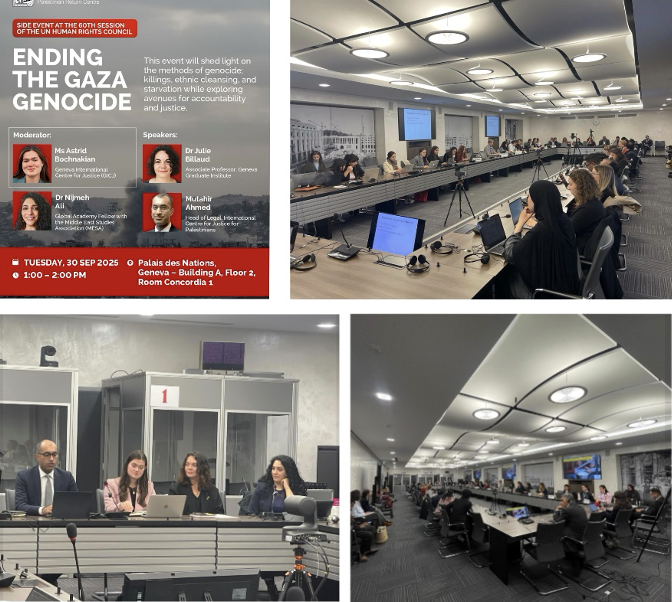
By Astrid Bochnakian / GICJ
Astrid moderated a discussion on the ongoing genocide in Gaza. This side event, held at the Palais des Nations on 30 September, during the 60th session of the Human Rights Council, was hosted by the Palestinian Centre for Return and shed light on the methods of genocide, namely killings, ethnic cleansing, and engineered famine, and explored avenues for accountability and justice.
The speakers were Dr. Julie Billaud (Geneva Graduate Institute), who analysed the famine in Gaza and the “starvation experiment”, Dr. Nijmeh Ali (Middle East Studies Association) who described the patterns of genocidal destruction and strategies for international pressure, and Mutahir Ahmed (International Centre for Justice for Palestinians), who developed on criminal complaints in the UK and broader international justice work.
This event brought together critical voices to highlight the suffering of the Palestinian people. Together, we must turn recognition into action and ensure justice for Palestine.
GICJ’s Attendance in Side Events
GICJ interns and volunteers attended various side events during the 60th session of the Human Rights Council to deepen their understanding of the human rights situation in Palestine, Yemen, Sudan, and Syria. This experience allowed us to broaden our perspectives on key geopolitical issues and strengthen the quality and impact of GICJ’s work.
“The genocide in Palestine”
Organised by the State of Palestine and the UN Independent International Commission of Inquiry on the Occupied Palestinian Territory
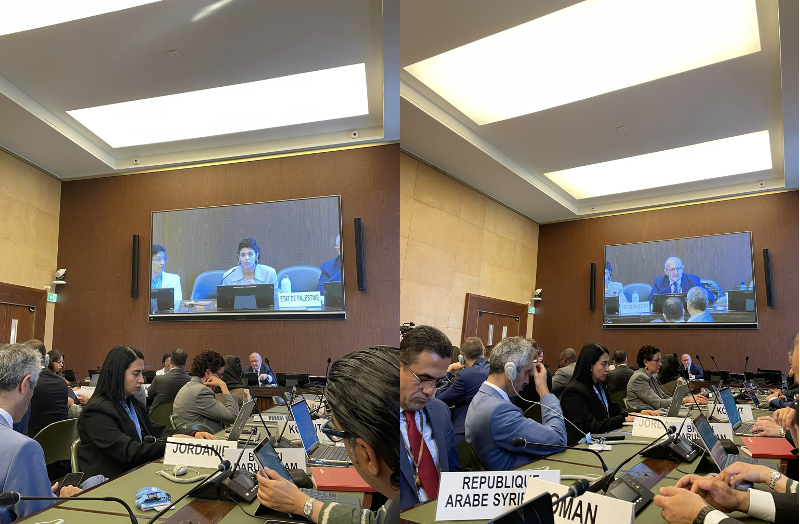
"Future generations will judge all of us" - Navanethem Pillay – Chair of the United Nations Independent International Commission of Inquiry on the Occupied Palestinian Territory
The United Nations Commission of Inquiry report on the situation in Palestine denounces a genocide committed by Israel in Palestine, with evidence of genocidal intent by Israeli authorities. The lack of financial support for investigative commissions, the inaction of the Security Council, and sanctions imposed by the United States, particularly against Francesca Albanese, the UN Special Rapporteur on the Occupied Palestinian Territories, weaken the international human rights system.
The international community is called upon to uphold its legal obligations to prevent and punish genocide, through political, economic, and judicial actions. There is an urgent need to protect civilians, ensure humanitarian aid, and put an end to impunity. Silence and inaction threaten not only Palestinians, but also the credibility and future of the international system.
“Human Rights in the Sudan”
Organised by Amnesty International
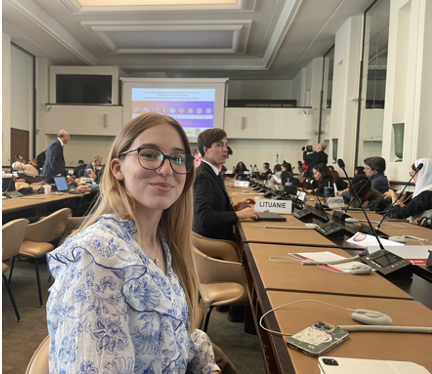
Speakers denounced the systematic use of sexual violence as a weapon of war against women in Sudan. Victims, isolated and without medical or psychological support, suffer from stigma and silence. Famine is being used as a weapon of war. Participants called for breaking the cycle of impunity in Sudan, protecting civilians, and ensuring humanitarian assistance.
“Business and Human Rights: Protection of the Environment”
Organised by Center for International Environmental Law (CIEL)
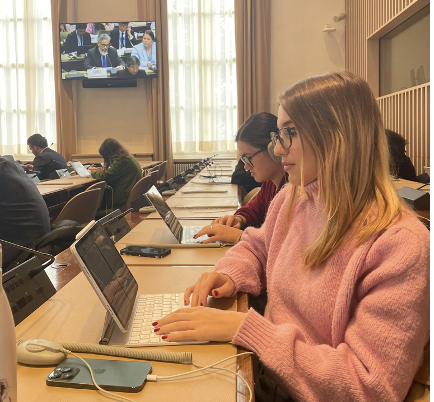
Speakers emphasised states’ duty to regulate corporations in the face of the planetary crisis. They criticised weak voluntary frameworks, calling for binding rules, stronger due diligence, and liability for human rights and environmental harm. Participants urged protection of defenders, prioritisation of communities over investors, and inclusive negotiations.
“Gender Equality and the Right to Development: Strengthening the Alliance”
Organised by the Permanent Mission of India
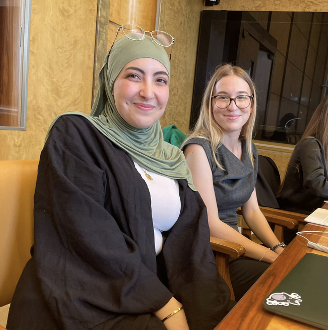
Speakers stressed that without gender equality there is no true development. They highlighted barriers such as harassment, violence, lack of education, and unequal access to resources. Participants called for intersectionality, gender-responsive budgets, and stronger international cooperation. Women’s organizations and civil society were recognized as key actors, while cases from conflict zones illustrated women’s role in peacebuilding. Gender equality was presented not only as a right but as essential for social justice, political voice, and sustainable development.
“Impact of armed conflict on the right to development –Yemen”
Organised by Forum for Development and Human Rights Dialogue
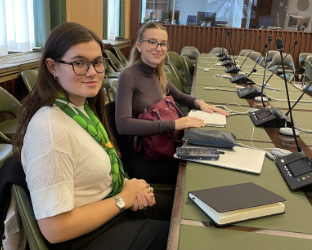
During a side event at the Human Rights Council, the discussion focused on the devastating impact of armed conflict on the right to development, with Yemen as a central case study. Participants highlighted how the ongoing war, led in large part by the Houthi armed group, has not only caused widespread destruction but has deeply undermined essential components of human development, particularly the rights of women, children, and civil society at large.
Women in Yemen are subjected to political, social, and cultural exclusion, along with rising levels of physical and sexual violence. It included forced marriages, domestic abuse, and even executions. Speakers emphasised that sustainable development cannot be achieved without the full and equal participation of women in peace processes and society.
The degradation of the education system was another major theme. Schools have been destroyed or repurposed to serve ideological goals, with Houthi forces altering curricula to promote extremist and racial ideologies. This manipulation of education is not accidental, it is a deliberate strategy to indoctrinate children.
Landmines planted by Houthi forces in both rural and coastal areas were also identified as a critical barrier to development. These mines are placed indiscriminately and without documentation, making post-conflict demining nearly impossible. The presence of mines has rendered large areas of land unusable for agriculture, severely impacting food production and economic recovery.
The practice of enforced disappearances and arbitrary detention was described as a grave violation of international law and a direct attack on the rule of law in Yemen. Civilians are often arrested without due process, held in secret detention facilities, and denied access to legal representation. Families of the disappeared suffer long-term psychological trauma, and communities are torn apart. These practices not only violate individual rights but also weaken the social fabric, creating deep dysfunction in families and undermining any foundation for long-term development.
In addition, there was strong concern over the recruitment and ideological indoctrination of children by the Houthis. Through propaganda and militarised education, children are being raised in an environment that glorifies violence. The need for urgent international intervention to re-educate and protect Yemeni children was made clear.
Speakers criticised the international community for failing to address the root causes of the conflict. The crisis in Yemen, much like the one in Sudan, is driven by racism. There were strong calls to criminalise racism and to recognise that sustainable peace will require dismantling the ideological foundations that fuel the conflict. Without tackling these root causes, efforts toward development will remain superficial and fragile.
During its 60th session, the Human Rights Council adopted a total of 35 resolutions, as well as one decision and one President's Statement.
GICJ chose to detail the resolutions that are the most relevant to our work :
Item 1 – Adoption on Draft Resolution A/HRC/60/L.10 (President Statement)
The Human Right to Safe Drinking Water and Sanitation
Spain and Germany led L.10, aligning it with Sustainable Development Goal 6, noting that over 2 billion people still lack access to safe water, a violation of health, dignity, and life.
The delegation of Spain called for universal support and the representative of Mexico urged swift adoption.
Benin reaffirmed that since 2016, water access has been a national priority, essential for development. The delegation of Cuba described clean water as a fundamental right that prevents disease and supports agriculture. The representative of Costa Rica linked environmental protection to health and life rights. UAE and Senegal referred to the 2026 Water Summit, calling for renewed commitments.
Draft resolution A/HRC/60/L.10 was adopted without a vote.
Geneva International Centre for Justice (GICJ) welcomes the reaffirmation of access to clean water as a fundamental human right. In a world where over 2 billion people lack safe water, inaction is no longer acceptable. We urge States to translate commitments into concrete national policies and resource allocation, prioritising the most vulnerable communities.
Item 2 – Adoption of Draft Resolution A/HRC/60/L.9
Situation of Human Rights in Afghanistan
Delegations expressed grave concern over the deteriorating human rights situation in Afghanistan, particularly the institutionalised discrimination and systemic oppression of women and girls under Taliban rule. Numerous speakers, including Denmark, Mexico, France, Iceland, Japan, Colombia, Chile, South Africa, and the Dominican Republic, denounced the bans on education, employment, and public participation, describing the situation as gender apartheid and, in some cases, a crime against humanity.
Several delegations, notably France, Iceland, and Chile, called for the establishment or renewal of investigative mechanisms and the mandate of the Special Rapporteur, emphasizing the need to end impunity and ensure truth, justice, reparation, and non-recurrence.
The delegation of France emphasized that the Human Rights Council must act urgently and decisively to protect the rights of women in Afghanistan. France condemned the Taliban’s policy of segregation, which systematically excludes women from political and economic life.
The representative of Iceland stressed that the international community must remain united and resolute, and must not allow the normalization of the current situation in Afghanistan.
South Africa highlighted that women in Afghanistan have been subjected to a series of institutionalized and widespread efforts aimed at erasing them from public life.
Japan and Mexico reaffirmed long-term support to the Afghan people through cooperation with civil society and international partners.
The delegation of Afghanistan welcomed the resolution as a long-overdue step, recalling years of advocacy amid ongoing repression, internet restrictions, humanitarian crises, and the resurgence of transnational terrorism on Afghan soil.
In the explanation of the vote, China acknowledged the importance of measures to enhance the protection of women and supported continued international engagement.
Draft resolution A/HRC/60/L.9 was adopted without a vote.
Geneva International Centre for Justice (GICJ) welcomes the adoption of this resolution by consensus and commends the Council’s unified stance against the gender apartheid imposed by the Taliban. We strongly support the renewal of independent investigative mechanisms and urge the international community to ensure that violations, particularly those targeting women and girls, are not met with impunity. GICJ stresses that access to education, employment, and public life is a non-negotiable right for all Afghan women and girls.
Item 2- Adoption of Draft Resolution A/HRC/60/L.18
Responding to the Human Rights and Humanitarian Crisis in Sudan
The draft resolution A/HRC/60/L.18, tabled by Germany, the United Kingdom, the Kingdom of Netherlands, and Norway, addressed the escalating armed conflict in Sudan and its devastating impact on civilians.
Supportive delegations, including the UK, Japan, EU Member States, the Netherlands, Costa Rica, Switzerland, Germany, Belgium, and Brazil, condemned sexual and gender-based violence, attacks on schools and hospitals, siege tactics such as in El Fasher, famine used as a weapon of war, and large-scale violations of international humanitarian law. Many emphasized that justice and accountability are essential, calling for the renewal of the Fact-Finding Mission’s (FFM) mandate as the only independent international mechanism capable of documenting ongoing atrocities.
The delegation of the United Kingdom emphasized that the people of Sudan are calling for accountability and peace, and that adopting the resolution is essential to demonstrate the international community’s support for their aspirations.
Some delegations, such as Qatar, Algeria, and South Africa, stressed support for Sudan’s unity and sovereignty, while still urging ceasefire efforts and cooperation with international mechanisms.
The delegation of Netherlands expressed deep concern over gender-based violence in Afghanistan, including the abduction of girls, forced marriage, and rape, underscoring the urgent need to prevent sexual violence.
The representatives of Netherlands and Germany firmly condemned the use of starvation as a weapon of war.
The delegations of Netherlands and Switzerland called for unimpeded humanitarian access to El Fasher, where many Sudanese civilians remain trapped in dire humanitarian conditions.
China, and others opposing the resolution, argued that international investigative mechanisms should not be imposed without the consent of the Sudanese Government, calling instead for dialogue-led solutions.
Kenya chose to abstain, expressing support for human rights protection while expressing reservations regarding the approach.
Following the vote:
Resolution L.18 was adopted with:
- 24 votes in favour,
- 11 abstentions,
- 12 votes against.
The delegation of Sudan rejected the resolution, invoking national sovereignty and alleging foreign interference in the conflict.
Geneva International Centre for Justice (GICJ) echoes the alarm over widespread violations, including the use of starvation, sexual violence, and attacks on civilian infrastructure as methods of warfare. We support the renewal of the Fact-Finding Mission as an essential tool for accountability. While acknowledging concerns regarding sovereignty, we emphasize that sovereignty can never be invoked to shield atrocity crimes.
Item 3 - Adoption of Draft Resolution A/HRC/60/L.2
Human Rights and Indigenous Peoples: Mandate of the Special Rapporteur
Under Item 3, the Council considered draft resolution A/HRC/60/L.2 on the mandate of the Special Rapporteur on the rights of Indigenous Peoples.
Chile announced its co-sponsorship of the text, reaffirming its commitment to advancing Indigenous rights and international cooperation in this area.
Draft Resolution L.2 was adopted without a vote, reflecting broad consensus among Council members on the importance of preserving and strengthening the Special Rapporteur’s role.
Geneva International Centre for Justice (GICJ) welcomes the unanimous adoption of this resolution. Indigenous communities worldwide continue to face discrimination, land dispossession, and systemic marginalisation. Strengthening the mandate of the Special Rapporteur is essential to ensuring their voices are heard in international fora.
Item 3 - Adoption of Draft Resolution A/HRC/60/L.3
Mandate of the Working Group on the Use of Mercenaries
The Council examined draft resolution A/HRC/60/L.3, addressing the mandate of the Working Group on the use of mercenaries, particularly regarding their role in violating human rights and obstructing the right of peoples to self-determination.
Several delegations underscored the responsibility of both public and private military companies for their complicity in human rights abuses, calling for stronger accountability mechanisms.
The representative of Algeria announced its support for the draft, emphasizing the need to regulate mercenary activities.Cyprus, speaking on behalf of the European Union, voiced opposition, expressing frustration that Cuba, the main sponsor, had rejected EU proposals to establish an independent UN expert mechanism. As a result, the EU voted against the resolution.
Following the vote:
The resolution L.3 is adopted with:
- 28 in favour,
- 17 against,
- 2 abstentions.
Geneva International Centre for Justice (GICJ) supports the renewal of this mandate and urges States to establish binding international regulations on private and state-sponsored mercenary activity. Such actors frequently operate in legal grey zones, contributing to human rights abuses while evading accountability. Greater transparency and oversight are critical.
Item 3 – Adoption of Draft Resolution A/HRC/60/L.4
Promotion of a Democratic and Equitable International Order
Cuba introduced draft resolution L.4, emphasizing the need to advance a global order based on sovereign equality, justice, and multilateral cooperation.
Ethiopia and Kenya voiced strong support, highlighting the importance of fair international frameworks. They emphasized the need for adequate financial resources and the transfer of technology. The delegations also underscored the importance of equitable participation and representation of all States in all decision-making processes.
Moreover, the delegation of South Africa stressed that no nation, whether rich or poor, large or small, should have a lesser voice in international decision-making.
The delegation of South Africa stressed that no nations rich or poor or big or little have less voice. The representative of Qatar also backed the draft and voted in favour.
The representative of the European Union opposed the resolution, stating it could undermine existing human rights standards, and therefore voted against it.
The delegation of Japan stated that the introduction of new language in the text had complicated their ability to support the draft resolution, and therefore they were compelled to vote against it.
Following the vote:
The resolution L.4 is adopted with:
- 24 in favour,
- 17 against,
- 6 abstentions.
Geneva International Centre for Justice (GICJ) acknowledges the importance of building a fair and inclusive multilateral system grounded in justice and cooperation. However, we recall that any discussion of international order must remain firmly rooted in universal human rights standards rather than geopolitical narratives.
Item 3 – Adoption of Draft Resolution A/HRC/60/L.6
Arbitrary Detention
Draft L.6 reaffirmed the mandate of the Working Group on Arbitrary Detention, established in 1991. Delegations stressed its essential role in fighting impunity and protecting individual liberties.
The delegation of France called the mandate indispensable for accountability. The representative of Spain expressed firm support, urging cooperation from all States and condemning reprisals, including against journalists and human rights defenders.
Cuba endorsed the resolution as a tool to protect all human rights. South Africa denounced the increased use of arbitrary detention by Israel since 7 October, in the context of the ongoing atrocities against Palestinians.
The delegation of China recalled that freedoms must be exercised within the limits of law.
Following the vote:
The resolution L.6 is adopted with:
- 28 in favour,
- 14 against,
- 5 abstentions.
Geneva International Centre for Justice (GICJ) strongly supports this resolution. Arbitrary detention remains one of the most widespread yet underreported violations globally. We echo calls for the protection of journalists, human rights defenders, and civilians, particularly in contexts of occupation and armed conflict. All States must fully cooperate with the Working Group.
Item 3 - Adoption of the Draft resolution A/HRC/60/L.5
The right to development
The delegation of Uganda, which submitted the draft on behalf of the Non-Aligned Movement, called for the extension of the Special Rapporteur’s mandate. The delegate emphasized that the preambular part of the resolution reflects the ongoing challenges faced by low- and middle-income countries in mobilizing and accessing the financial resources required to achieve the Sustainable Development Goals.
The representative of Cuba reaffirmed that development is not merely a measurable target but rather an inalienable human right and an integral part of fundamental human rights.
The delegation of Ethiopia reiterated its long-standing commitment to the right to development as an inalienable and universal human right, grounded in the Charter of the United Nations and the Declaration on the Right to Development. The delegate stressed that the right to development must be prioritized to ensure sustainable progress for all nations. The delegation denounced the continued underrepresentation of developing countries in global decision-making processes and expressed strong support for the elaboration of a legally binding instrument on the right to development. Furthermore, the delegate underlined the importance of strengthening both the mandate and the resources of the Special Rapporteur and the Expert Mechanism on the Right to Development.
The delegation of the European Union raised serious concerns about provisions in the text that, inter alia, could interfere with the independence of the Office of the High Commissioner for Human Rights (OHCHR). Despite diverging views on the right to development, particularly regarding the proposed legally binding instrument, the EU affirmed its willingness to continue engaging constructively. The EU delegation expressed appreciation that some of its suggestions were partially reflected in the revised draft but regretted that others were not, preventing the emergence of a consensus. Consequently, the EU member states voted against the draft.
Draft proposal A/HRC/60/L.5 was adopted with :
- 28 votes in favor,
- 14 against,
- 5 abstentions.
Geneva International Centre for Justice (GICJ) welcomes the adoption of this important resolution and supports the extension of the Special Rapporteur’s mandate. GICJ strongly condemns the continued underrepresentation of developing and least developed countries in global decision-making processes. The right to development is a universal, inalienable, and fundamental human right—indispensable for achieving a just, equitable, and inclusive global order.
Item 10 - Adoption of the Draft resolution A/HRC/60/L.26
Technical assistance and capacity-building for Yemen in the field of human rights
The delegate of Algeria, on behalf of the Arab Group, introduced the draft resolution, whose objective is to strengthen cooperation between Yemen and the Office of the High Commissioner for Human Rights (OHCHR) through technical assistance and capacity-building measures. The representative of Algeria affirmed that the resolution condemns the violations perpetrated by the Houthis against UN infrastructures and personnel, describing them as flagrant breaches of international law.
Indonesia, China, and the Maldives welcomed the work of the National Commission of Inquiry in Yemen, emphasizing its crucial role in investigating human rights violations in the country.
The delegation of China reiterated its opposition to the politicization and instrumentalization of human rights issues, as well as to the establishment of country-specific mechanisms without the consent of the state concerned.
Moreover, the representatives of China, Cuba, and Bangladesh called on the international community to enhance technical assistance and capacity-building efforts for Yemen, in order to play a constructive role in improving human rights protection in the country.
The representative of Cuba reiterated its condemnation of Israeli attacks on civilian and domestic facilities, which negatively impact the human rights of the Yemeni people and undermine efforts to promote peace and stability in the Middle East.
The delegation of Bangladesh expressed appreciation for the renewed commitment of the Government of Yemen to cooperate with the Office of the High Commissioner and relevant human rights mechanisms to strengthen its national institutions.
Gambia urged all parties to the conflict to respect international humanitarian and human rights law, to facilitate humanitarian access, and to prioritize dialogue and reconciliation as the only sustainable path toward peace and stability.
The delegation of Yemen reaffirmed its readiness to continue cooperating with the Office of the High Commissioner and with the Human Rights Council to improve the human rights situation in the country. Yemen stressed its determination to investigate violations of international humanitarian and human rights law and to hold perpetrators accountable. The delegation also expressed deep concern over the violations faced by UN staff, humanitarian workers, and diplomats, recalling the Houthi militia’s attack on UN headquarters, and emphasized the need to ensure an environment in which humanitarian actors can operate safely and without obstruction.
Draft resolution A/HRC/60/L.26 was adopted without a vote.
Geneva International Centre for Justice (GICJ) welcomes the adoption of this resolution and reiterates its call for all parties to the conflict to fully respect international humanitarian and human rights law, to protect civilians, and to ensure unhindered humanitarian access. GICJ urges the Government of Yemen to strengthen its collaboration with UN human rights mechanisms and to further enhance the work of the National Commission of Inquiry. We also emphasize the urgent need to guarantee the safety and protection of humanitarian personnel, whose efforts are vital to safeguarding civilian lives and alleviating human suffering in Yemen.
Item 10 - Adoption of the Draft resolution A/HRC/60/L.28
Promotion and protection of the human rights of women and children in conflict and post-conflict situations: ensuring justice, remedies and reparation for victims
The representatives of Russia, Sudan, and Gambia affirmed that armed conflict has a disproportionate impact on women and children. The delegates welcomed the fact that the draft resolution highlights the crucial role played by women in peacebuilding processes.
The delegate of Russia underscored the importance of ending the use of starvation as a method of warfare. The delegation of Colombia emphasized that attacks on schools and healthcare facilities deprive entire communities, particularly women and girls, of access to essential services.
The delegation of Cyprus, speaking on behalf of the European Union, deplored that women and girls continue to be disproportionately subjected to gender-based violence, torture, and early or forced marriage. The representatives of the European Union, Marshall Islands, Colombia, and Russia further stressed that women remain underrepresented in peace negotiations, even though they must be recognized as key protagonists in peacebuilding processes.
The representative of Kenya highlighted that protecting education during armed conflict is essential for ensuring long-term peace.
The representative of Bangladesh affirmed that it is the shared responsibility of the international community to ensure that women and children have a voice in shaping the future.
South Africa emphasized that grave violations against children have reached unprecedented levels, particularly through the use of starvation as a weapon of war. The delegate also noted that the continued killing of children by mines and explosive devices leaves them with lifelong disabilities.
The delegation of Colombia stated that women are the source of life, while children embody humanity’s collective future.
Draft resolution A/HRC/60/L.28 was adopted without a vote.
Geneva International Centre for Justice (GICJ) calls on all States to uphold international humanitarian and human rights law in times of conflict and to pay particular attention to the protection of women and children, who remain among the most vulnerable groups. GICJ stresses that women must be meaningfully included in all peacebuilding processes, and that their perspectives and leadership are essential to building fair, resilient, and sustainable societies. GICJ further emphasizes the urgent need to protect civilian infrastructure, including schools and healthcare facilities, during armed conflict, to cease the use of starvation as a method of warfare, and to ensure the unhindered delivery of humanitarian assistance. It is the collective duty of the international community to safeguard the rights of women and children: their right to life, to family, to dignity, to education, and to live free from violence. Only by upholding these rights can we foster lasting peace and human security.
Item 10 - Adoption of the Draft resolution A/HRC/60/L.30
Technical assistance and capacity-building to improve human rights in Libya
The delegation of Ghana, speaking on behalf of the African Group and other co-sponsoring countries, presented the draft resolution, which was prepared with the full participation and consent of the concerned State. Ghana called on the United Nations, through the Office of the High Commissioner for Human Rights (OHCHR), to continue providing technical assistance and capacity-building support to Libya. This support is intended to help international and national institutions address ongoing human rights challenges and to strengthen the Libyan state institutions responsible for the protection and promotion of human rights.
The representative of Ghana emphasized that the resolution sends a clear and positive message from Libya and reflects its willingness to engage with the international community. The resolution demonstrates Libya’s commitment to upholding its international obligations and to improving the human rights situation for both its citizens and all those residing within its territory.
The delegation of Switzerland, however, expressed concern over the ongoing human rights violations in Libya, highlighting that the resolution does not sufficiently reflect the current and serious human rights situation on the ground. As such, Switzerland chose not to support the resolution.
The delegation of Libya reaffirmed its belief in the importance of strengthening national institutions, enhancing technical expertise, and building institutional capacity. Libya appealed to the OHCHR to continue its support, stressing that such cooperation is essential for effectively addressing human rights challenges. The Libyan representative concluded by requesting an extension of the cooperation mandate, which, according to Libya, is a testament to its continued commitment to promoting human rights in collaboration with relevant international actors.
Draft resolution A/HRC/60/L.30 was adopted without a vote.
Geneva International Centre for Justice (GICJ) calls for the extension of the cooperation mandate and urges the Libyan government to fully respect its obligations under international human rights and humanitarian law, and finally to take concrete, transparent measures to prevent further violations.
During the 60th session of the Council, GICJ members wrote 21 discussion reports, which cover the following agenda items:
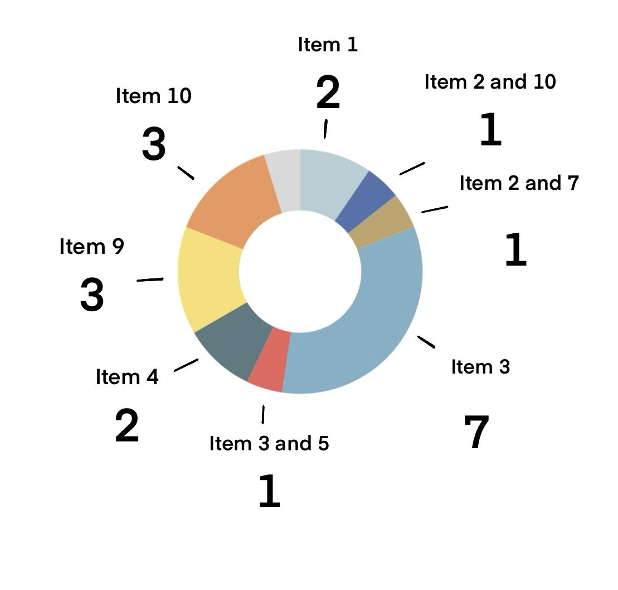
- Item 2: Enhanced Interactive Dialogue on Afghanistan
- Item 2: Interactive Dialogue with the Fact-Finding Mission on the Sudan
- Item 2 and 10: Interactive Dialogue Enhanced Interactive Dialogue on the Democratic Republic of Congo
- Item 3: Interactive Dialogue with Special Rapporteur on truth, justice, reparation and guarantee of non-recurrence
- Item 3: Interactive Dialogue with the Special Rapporteur on the right to development
- Item 3: Interactive dialogue with the Special Rapporteur on contemporary forms of slavery
- Item 3: Interactive Dialogue with the Independent Experton International Order
- Item 3: Interactive dialogue with Working Group on enforced disappearances
- Item 3: Interactive Dialogue with the Working Group on Arbitrary Detention
- Item 3: Interactive dialogue on the Secretary-General's synthesis report on climate change
- Item 4: Interactive dialogue with the Special Rapporteur on Burundi
- Item 4: Oral Update of the COI on Syrian Arab Republic
- Item 3 and 5: Interactive Dialogue with Special Rapporteur on rights of Indigenous Peoples
- Item 2 and 7:Presentation of High Commissioner report on implementation of 31/36
- Annual Discussion on the Integration of a Gender Perspective (HRC res 6/30)
- Item 9: Interactive Dialogue with the Working Groupon People of African Descent
- Item 9: Interactive Dialogue on the report of the Permanent Forum on People of African Descent
- Item 9: Enhanced Interactive Dialogue with HC and International Independent Expert Mechanism to Advance Racial Justice and Equality in Law Enforcement
- Item 10: Interactive dialogue with independent Expert on Central African Republic
- Item 10: Interactive Dialogue on technical cooperation in Libya
- Item 10: Presentation of the High Commissioner's country report on Yemen, followed by General Debate
Item 2: Enhanced Interactive Dialogue on Afghanistan
An urgent call to meet Afghan women’s bravery with decisive international action
8 September 2025
By Stefania Plougarli / GICJ
Since the Taliban's August 2021 takeover, Afghanistan has experienced a profound and deepening deterioration in human rights, women's rights, and humanitarian conditions. The de facto authorities have imposed extensive restrictions, leading to systematic gender persecution, described by international agencies as gender apartheid, effectively excluding women and girls from public life, education, and employment.
During the 60th Human Rights Council Session, a panel of experts and various state parties deliberated on Afghanistan’s human rights situation. The general remarks underscored the pervasive extreme discrimination against women and girls, as well as the ongoing humanitarian crisis. The panel also voiced strong warnings against any "creeping normalization" of the Taliban regime. There were further urgent calls made for immediate action from the Taliban to rescind discriminatory laws and end abuses, alongside pleas for international pressure, strengthened support for civil society, and the establishment of new independent investigative mechanisms to ensure accountability.
Geneva International Centre for Justice (GICJ) fully supports these findings and expresses deep concern for Afghan women and girls living under gender apartheid. GICJ echoes the urgent calls for immediate and decisive international action, advocating for intensified pressure, targeted sanctions, and robust accountability mechanisms.
Read the full discussion report here
Item 2: Interactive Dialogue with the Fact-Finding Mission on the Sudan
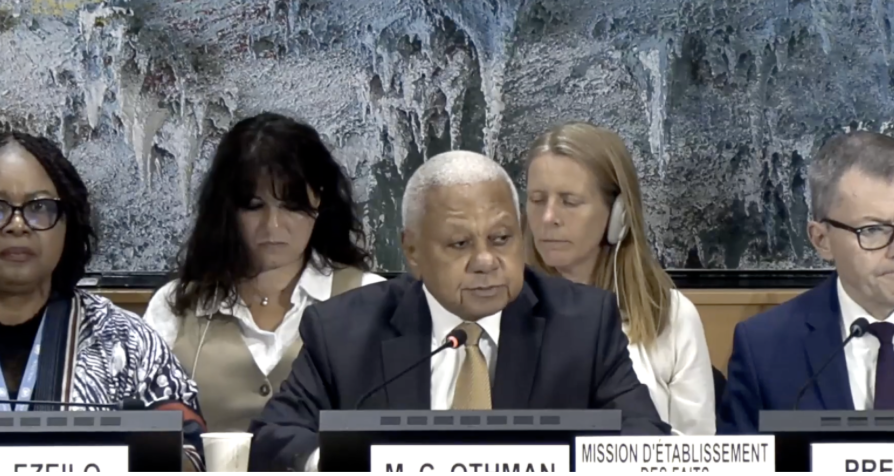
“A War of Atrocities”: Recent Fact-Finding Mission on the Sudan Report showcases Horrors of Violations
9 September 2025
By Minna Adlan / GICJ
The Interactive Dialogue on the Fact-Finding Mission’s report on Sudan showcased a harrowing picture of a country that has been engulfed in a “war of atrocities”. The Independent FFM detailed the widespread violations by both the Sudanese Armed Forces (SAF) and the Rapid Support Forces (RSF), as well as their allies. The RSF’s conduct was found to constitute or reach the level of crimes against humanity, which included extermination and persecution. Delegates from all regional groups expressed their concerns and alarms at the catastrophic humanitarian crisis, including the threatening famine, mass displacement, and systematic sexual violence. Though many states, including those from the African Group, the Arab Group and the European Union, called for an immediate ceasefire and humanitarian access, there were recommendations presented regarding the path to accountability. A significant number of delegations strongly supported the renewal of the FFM’s mandate as a crucial independent mechanism for evidence collection, while others, such as Sudan, Eritrea, and Sri Lanka, emphasised national sovereignty and the priority of internal domestic judicial frameworks and processes. Nevertheless, the dialogue was unified in the call to centre the needs of victims and survivors, with the FFM experts and numerous states stressing that peace without justice is an illusion.
Geneva International Centre for Justice (GICJ) echoes this sentiment and calls for the immediate extension of the FFM’s mandate to ensure that evidence of these atrocities is preserved and that a victim-inclusive pathway to justice and accountability is implemented without delay.
Read the full discussion report here
Item 2 & 10: Interactive Dialogue Enhanced Interactive Dialogue on the Democratic Republic of Congo
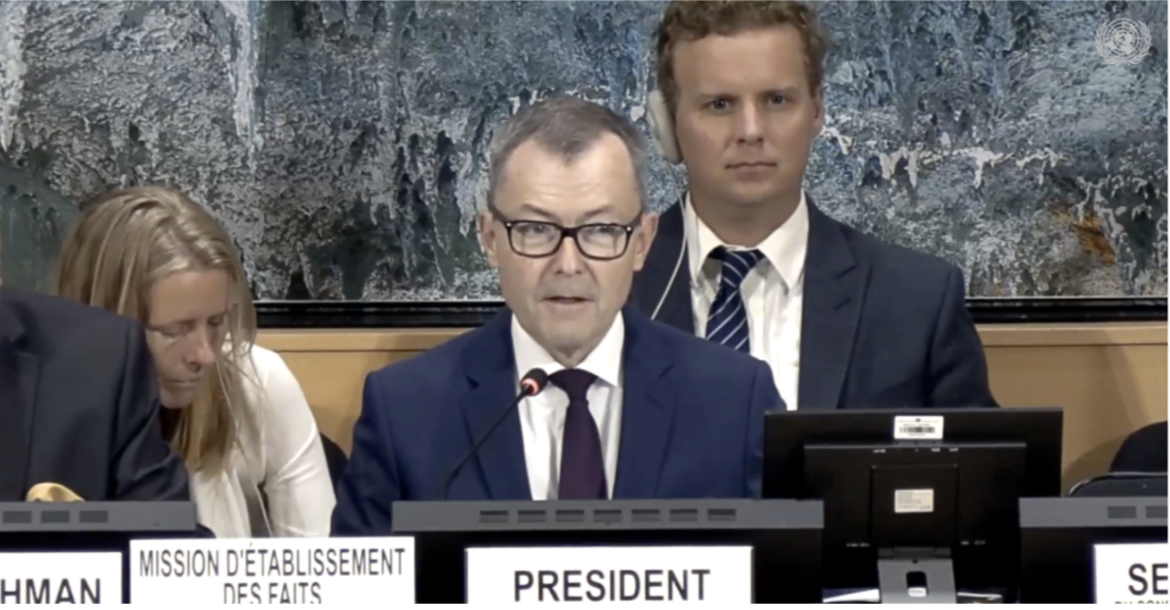
Voices Silenced: Uncovering the Human Rights Emergency in DRC
9 September 2025
By Elena Hadad / GICJ
At the 60th Session of the Human Rights Council, interactive dialogues addressed grave human rights situations in the Democratic Republic of the Congo (DRC). Testimonies highlighted atrocities by armed groups, including M23, ADF, and allegations of Rwandan involvement. The Council heard calls that urged all parties to respect commitments made during the Washington agreement to end the gender based violence, sexual abuse, and repression of human rights defenders.
The Council mandated an independent fact-finding mission in February to investigate the recent escalation of violence in North and South Kivu provinces. The mission aimed to document violations of international human rights and humanitarian law, establish accountability, and provide impartial reporting in the context of widespread propaganda, disinformation, and fear. The FFM found all parties (M23, ADF, Wazalendo, FARDC, and Rwandan Defence Forces/RDF) committed serious violations, many amounting to war crimes and crimes against humanity.
Geneva International Centre for Justice (GICJ) welcomes the Fact-Finding Mission and reiterates its concern over human rights and humanitarian law abuses in the Democratic Republic of the Congo.
Read the full discussion report here
Item 3: Interactive Dialogue with Special Rapporteur on truth, justice, reparation and guarantee of non-recurrence
The Role of Truth and Reparation in Upholding Victims’ Rights and Preventing Future Violations
10 September 2025
By Haliema Sharfeddine and Sonia Darrieumerlou / GICJ
The discussion on the promotion of truth, justice, reparation, and guarantees of non-recurrence during the 6th Meeting of the 60th session of the Human Rights Council highlighted the continued relevance and urgency of transitional justice in diverse global contexts. Grounded in Resolution 18/7 and the established mandate of the Special Rapporteur, the session underscored the foundational role of these four pillars in upholding victims’ rights, strengthening the rule of law, and preventing future violations.
The Special Rapporteur, Mr. Bernard Duhaine, presented his findings following a country visit to Brazil. While acknowledging significant progress, including the establishment of the Amnesty Commission and the National Truth Commission, his report pointed to disruptions between 2019 and 2022 that weakened institutional efforts. He called on Brazil to consolidate gains, ensure reparations, advance accountability, and strengthen guarantees of non-recurrence through robust reforms, inclusive policies, and the active involvement of civil society and victims’ groups.
During the interactive dialogue, Brazil reaffirmed its commitment to democratic principles and outlined recent institutional developments aimed at addressing past abuses. Other delegations echoed the importance of truth-seeking, preservation of archives, inclusive reparations, and international cooperation. The European Union stressed the need for gender-sensitive approaches and tackling misinformation. Sudan and South Africa emphasized the role of documentation in ongoing and post-conflict settings. Chile and the State of Palestine highlighted the urgency of protecting journalists and media infrastructure in conflict zones. Switzerland focused on civil society’s role in preserving critical documentation.
Read the full discussion report here
Item 3: Interactive Dialogue with the Special Rapporteur on the right to development
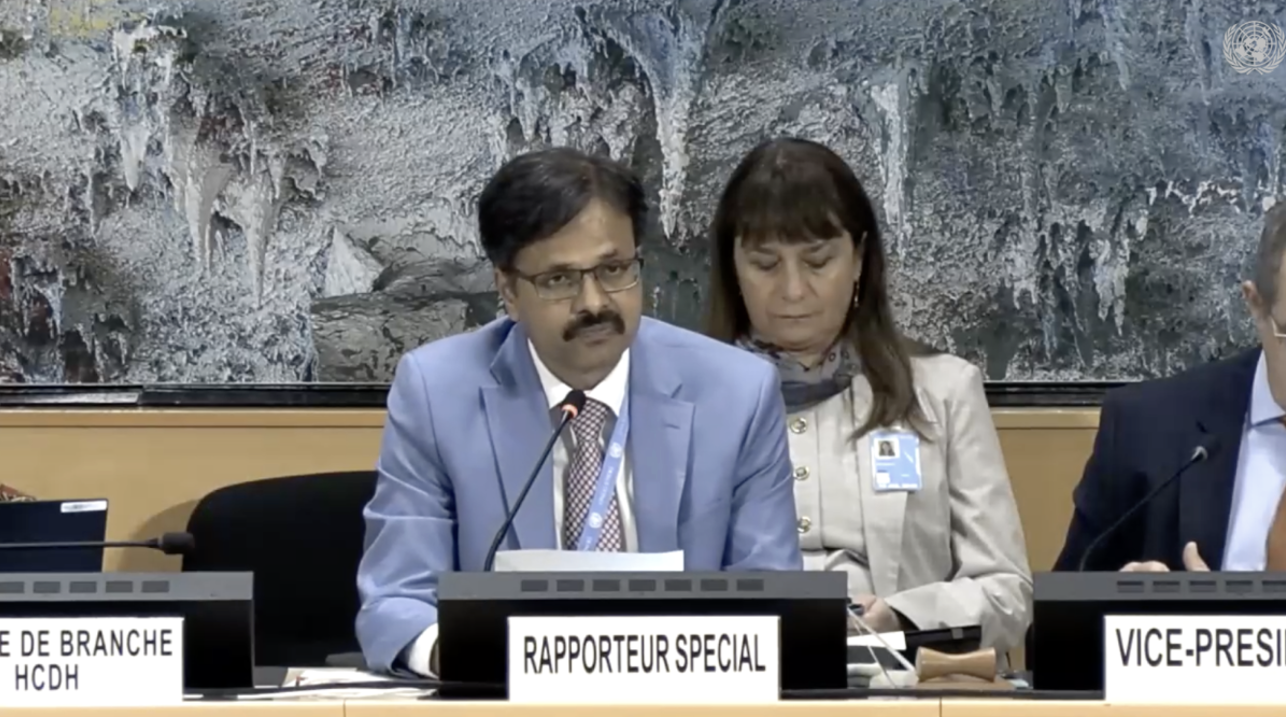
The Universal Right to Development… and the Many Obstacles Faced by Women Towards It
10-12 September 2025
By Arwa Akbar / GICJ
On 10 and 12 September 2025, the 6th and 7th Meetings of the 60th session of Human Right Council took place, during which the discussion on Item 3: Interactive Dialogue with the Special Rapporteur on the right to development occurred. In his discussion, the Special Rapporteur, Mr. Surya Deva, presented the findings of his report on the Nexus between gender equality and the right to development (A/HRC/60/25) and the Special Rapporteur’s visit to Honduras (A/HRC/60/25/Add.1). He emphasised the mutually-reinforcing nature of the right to development and gender equality.
During the dialogue, several groups of countries voiced their support for his mandate and report, demonstrating their commitment towards the nexus. Calls for a unified international instrument to ensure accountability were echoed throughout the Council, in an effort to end impunity.
Geneva International Centre for Justice (GICJ) supports measures towards gender equality and the right to development, affirming that both mechanisms must be achieved to ensure the right to development for all. We encourage the Special Rapporteur to continue his mandate.
Read the full discussion report here
Item 3: Interactive dialogue with the Special Rapporteur on contemporary forms of slavery
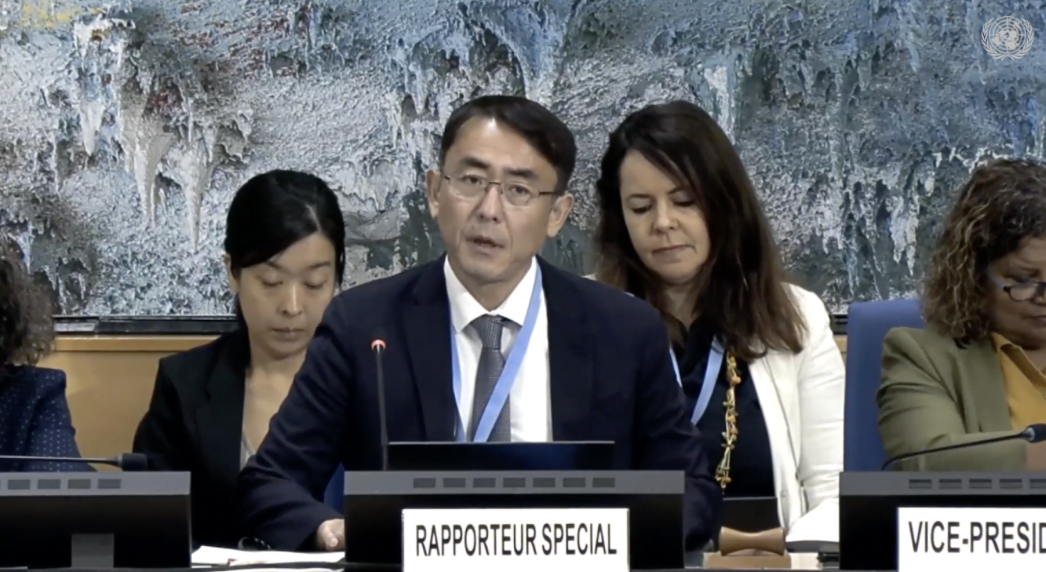
Voices Against Exploitation: An Interactive Dialogue on Contemporary Slavery
12 September 2025
By Sonia Darrieumerlou and Haliema Sharfeddine / GICJ
Contemporary forms of slavery continue to pose a severe global human rights challenge, affecting millions despite longstanding international legal frameworks. Forced labour, debt bondage, forced marriage, child labour, human trafficking, and servitude persist, driven by structural inequalities, poverty, conflict, and weak governance. The COVID-19 pandemic, climate crises, and economic instability have further exacerbated these vulnerabilities, particularly for women, children, migrants, and marginalised groups.
At the Human Rights Council’s 60th session, the interactive dialogue with the Special Rapporteur on contemporary forms of slavery, Professor Tomoya Obokata, focused on the worst forms of child labour in the context of achieving Sustainable Development Goal 8.7. The Special Rapporteur acknowledged limited progress but warned that the most severe forms of child exploitation, including forced labour, bonded labour, sexual exploitation, and hazardous work, remain widespread. Persistent poverty, inadequate education, weak law enforcement, and insufficient social protection continue to impede progress, while emerging threats such as digital exploitation and climate-induced displacement worsen the situation.
The report called for stronger legal frameworks, better enforcement, expanded access to education and social protection, and greater corporate accountability. During the dialogue, Ecuador and Guatemala reaffirmed their national commitments, highlighting progress in integrating child labour prevention into social and educational systems and strengthening institutional coordination.
The session concluded with a call for renewed global commitment and coordinated, rights-based action to accelerate the eradication of child labour and uphold the dignity and rights of vulnerable children worldwide.
Read the full discussion report here
Item 3: Interactive Dialogue with the Independent Expert on International Order
International Law on the Limbo & Inequality in Between
12 and 15 September 2025
By Maria Francisca R. Costa / GICJ
The Interactive Dialogue with the Legal Expert on the promotion of a democratic and equitable international order during the 8th, 9th, and 10th meetings of the 60th session of the Human Rights Council highlighted participants’ commitment to reform the international government and finance systems, reinforce the mandate of International Law and uphold the values of Justice and Human Rights.
The IE, Mr. George Katrougalos, expressed grave concerns over recent attacks on the territorial integrity of states, the international law system, and Human Rights norms. He also called for a more just, inclusive decision-making system that accounts for the needs of developing economies for the achievement of sustainable development.
Geneva International Centre for Justice (GICJ) expresses its concerns over the escalating use of unilateral force and sanctions on sovereign territory and the disregard for, and violation of, international law and Human Rights norms. Further, GICJ fully supports redesigning the international governance and finance systems, addressing the widening wealth and digital divide and ensuring global equity through more inclusive forms of governance.
Read the full discussion report here
Item 3: Interactive Dialogue with the Working Group on Arbitrary Detention 
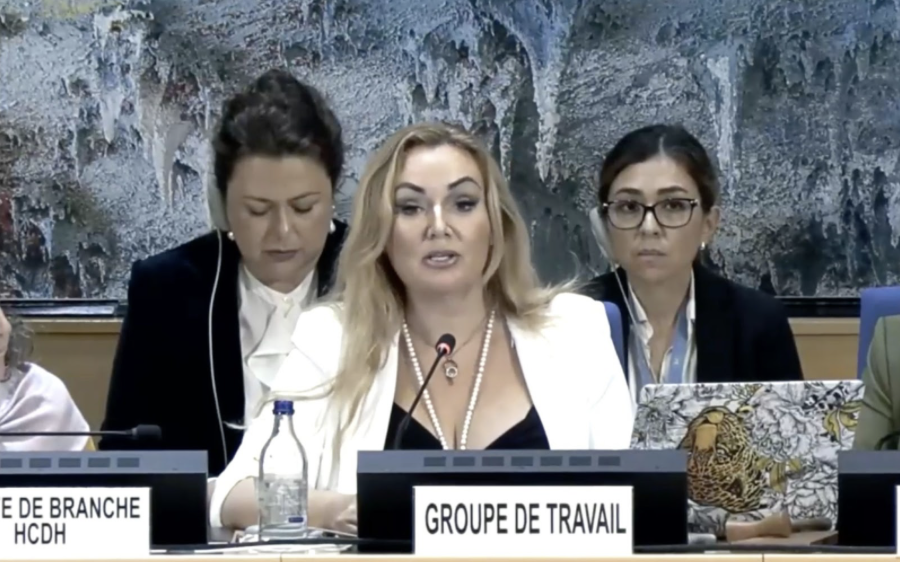
Silence Prolongs Suffering: Addressing Arbitrary Detention Worldwide
16 September 2025
By Astrid Bochnakian / GICJ
At its 60th session, the Human Rights Council held an interactive dialogue with the Working Group on Arbitrary Detention, which presented its 2024 annual report and findings from its country visit to Canada. The WG issued 71 opinions covering 149 individuals across 41 countries, alongside 30 urgent appeals concerning over 550 persons, while highlighting a troubling pattern of reprisals against those cooperating with its mandate and the persistently low rate of State responses. The thematic focus on alternatives to pretrial detention (PTD) underscored that detention must remain an exception, not the rule, under international law, and stressed the need for proportionate, non-discriminatory, and achievable alternatives.
During its visit to Canada, the WG welcomed reforms such as reduced incarceration rates, restorative justice initiatives, and culturally appropriate rehabilitation programs for Indigenous offenders, while raising concerns about systemic discrimination, flawed bail processes, poor detention conditions, and the disproportionate number of Indigenous populations and people of African descent in the correctional system. In the dialogue, Chair-Rapporteur Dr. Ganna Yudkivska urged States to engage fully with the WG, warning that “silence prolongs suffering while engagement saves lives.” Delegates from various regions expressed support for the WG’s mandate, condemned arbitrary detention as a tool of repression, and called for stronger safeguards, particularly in contexts such as Belarus, Russia, Afghanistan, and the Occupied Palestinian Territories. NGOs echoed concerns over systemic abuses, especially Israel’s use of administrative detention.
The WG concluded that meaningful cooperation with States is essential for the mandate to be effective, reiterating that alternatives to PTD are both a safeguard for justice and a reflection of the health of national legal systems.
Geneva International Centre for Justice (GICJ) commends the Working Group’s vital efforts to end arbitrary detention, applauding its opinions, appeals, and recommendations as essential to upholding international law. We condemn reprisals against those cooperating with the WG and call on all States to fully engage by responding to its communications and urgent appeals.
We are deeply concerned about the widespread use of arbitrary detention in the Occupied Palestinian Territories (OPT), where individuals of all ages are often held without charge or fair trial. The extensive resort to administrative detention violates the rights to liberty and due process, fostering a broader climate of fear, repression, and systemic discrimination.
GICJ urges States to end the arbitrary detention of human rights defenders, activists, lawyers, journalists, and others exercising their rights. We further call on governments to ensure accessible, non-discriminatory alternatives to pretrial detention that are both practical and effective.
Read the full discussion report here
Item 3: Interactive dialogue with the Working Group on enforced disappearances
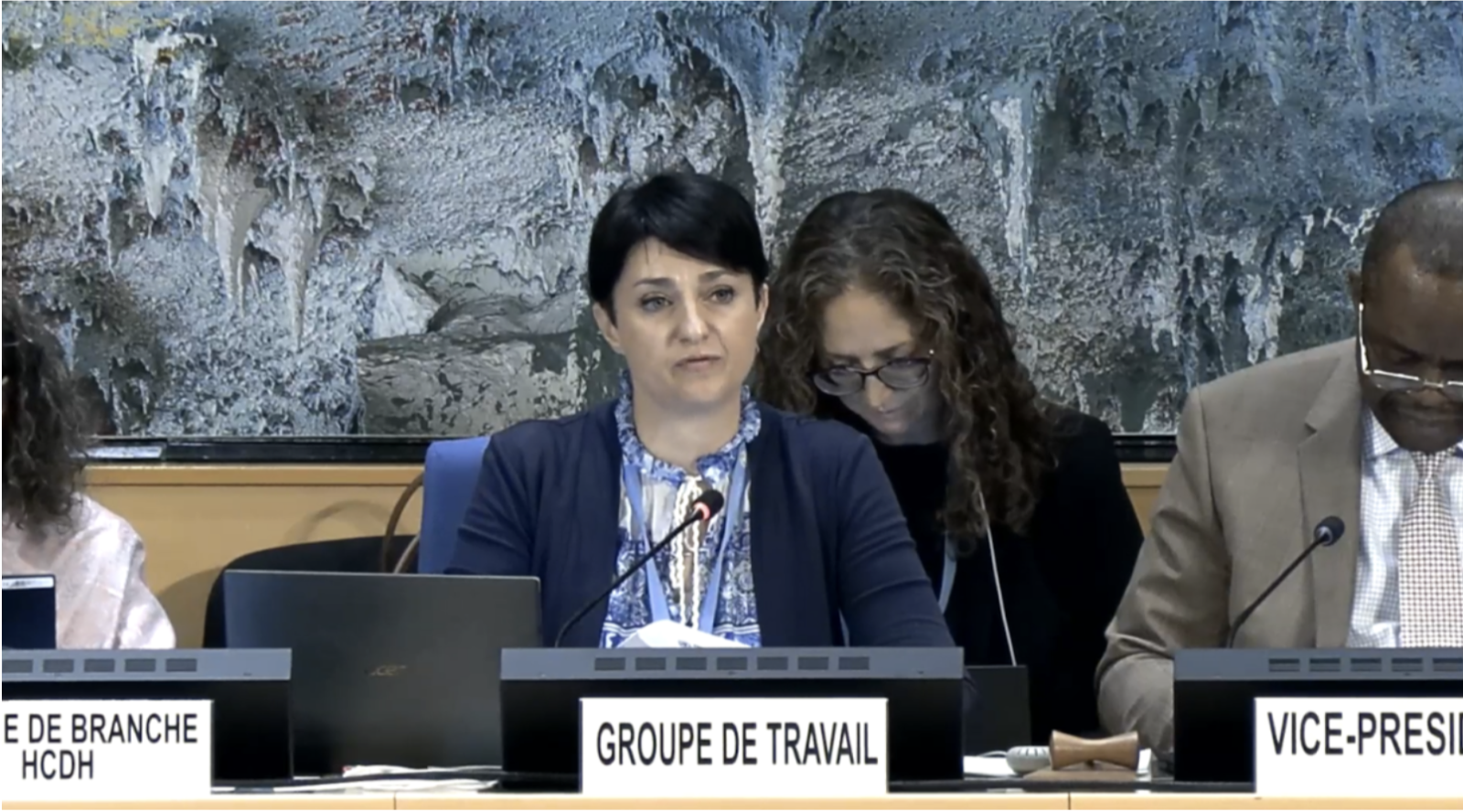
Stuck between Hope and Despair - The Global Crisis of Enforced Disappearance
16-17 September 2025
By Muriel Imhof / GICJ
On 16 September 2025, during the 60th Session of the Human Rights Council, Gabriella Citroni, the Chairperson of the Working Group on Enforced or Involuntary Disappearances presented her report on enforced or involuntary disappearances which followed by an Interactive Dialogue with Member States and NGOs on 16 and 17 September 2025.
The report underscored the global occurrence, the hindrances to the investigations by the Working Group on Enforced or Involuntary Disappearances, and broad usage. Enforced disappearances continue in armed conflicts, during elections, and in the context of migration and deportations. Enforced disappearances are also committed in transnational transfers and under the guise of counter-terrorism activities in Pakistan and in Egypt. The A/HRC/60/35 report underlines that many cases persist without resolution; many victims and families are left without truth, justice, or reparations. The report presses States to fulfil their obligations under international law to prevent, investigate, respond, and ensure accountability and support for victims.
Geneva International Centre for Justice (GICJ) strongly condemns the ongoing practice of enforced disappearances worldwide. We reaffirm that enforced disappearances constitute a grave violation of international law, and in some circumstances, amounts to a crime against humanity. GICJ urges all States to:
- Ratify and fully implement the International Convention for the Protection of All Persons from Enforced Disappearance.
- Criminalise enforced disappearances in national legislation and ensure independent investigations are conducted.
- Provide full cooperation to international mechanisms, including the Committee on Enforced Disappearances (CED) and the Working Group on Enforced or Involuntary Disappearances (WGEID).
- Ensure the protection and participation of victims' families.
- Guarantee reparations and psychosocial support for survivors and affected families.
In conclusion, GICJ calls on the international community to increase pressure on States that continue to employ enforced disappearances as a tool of control or conflict.
Read the full discussion report here
Item 3: Interactive dialogue on the Secretary-General's synthesis report on climate change
Climate Crisis Demands Rights-Based Due Diligence
17 September 2025
By Mihretab Mekonnen Beyene/ GICJ
The 60th Session of the Human Rights Council convened an Interactive Dialogue on the Secretary-General's synthesis report (A/HRC/60/52). The consensus unequivocally categorised the climate crisis as an existential threat to the realisation of all human rights, including those of a non-derogable nature, thereby mandating an urgent rights-based governance paradigm for the Just Transition. The core discourse reinforced the non-derogable legal obligation of States, recognised as the primary duty bearers erga omnes, to prevent foreseeable climate harms. This obligation is now robustly supported by definitive advisory jurisprudence from international judicial bodies. Delegates consistently emphasised the structural asymmetries and systemic marginalisation that generate the disproportionate and foreseeable vulnerability of rights-holders. The debate crystallised the need for the phase-out of fossil fuels to be fundamentally rooted in substantive equality, ensuring the securing of decent work and comprehensive social protection, transcending mere economic adjustment.
Geneva International Centre for Justice (GICJ) maintains that securing climate resilience is inseparable from fulfilling fundamental international justice mandates. We call upon States to immediately transition from rhetorical commitment to obligatory compliance, operationalising the principles articulated in the Secretary-General's report by integrating substantive and procedural human rights into all climate governance frameworks and establishing robust, effective remedies and redress mechanisms for loss and damage.
Read the full discussion report here
Item 4: Interactive dialogue with the Special Rapporteur on Burundi
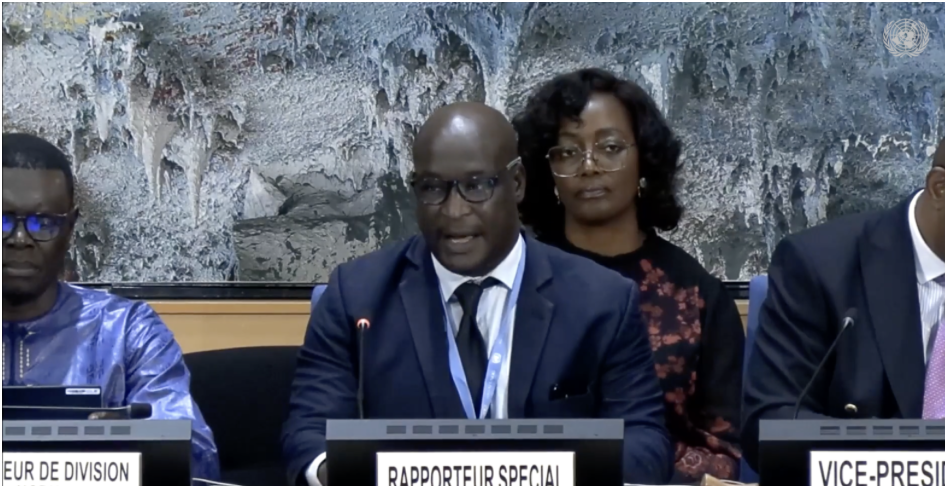
Burundi’s crisis - A call for acknowledgement and accountability
19 September 2025
By Marcela Miteva/GICJ
During its 60th Human Rights Council Session, on 19 September 2025, in an Interactive Dialogue, Mr. Fortuné Gaetan Zongo, the Special Rapporteur on the situation of Human Rights in Burundi upon his findings, raised serious concerns about the arbitrary arrest, prolonged detention, torture, enforced disappearances, attacks against journalists, sexual violence, freedom of the media, and expression, free elections, expropriation of land and property by the state as a form of oppression towards minorities and opposition sympathizers, and finally, institutionalized discrimination against women.
The Special Rapporteur expressed concern about the lack of cooperation on behalf of the Burundian government, which, according to him, signals a distancing of oneself from the Human Rights Council’s decisions.
Besides the findings presented by various experts and state parties about the human rights situation in Burundi with a focus on the abovementioned issues, some of the panellists flagged their disapproval of the imposition of the mandate of the Special Rapporteur on Burundi without the country's consent. The speaker of Burundi, Ms. Elisa Nkerabirori, also shared this view, claiming that it infringed on their state’s sovereignty and violated some of the enshrined principles of international law and the UN Charter.
Geneva International Centre for Justice (GICJ) remains deeply concerned about the ongoing reported enforced disappearances of political motives, as well as the cruel and inhuman treatment in detention centres. GICJ believes in the non-impunity principle and calls for the immediate provision of adequate legal remedies for victims as well as the strengthening of an independent judicial system.
Read the full discussion report here
Item 4: Oral Update of the COI on Syrian Arab Republic
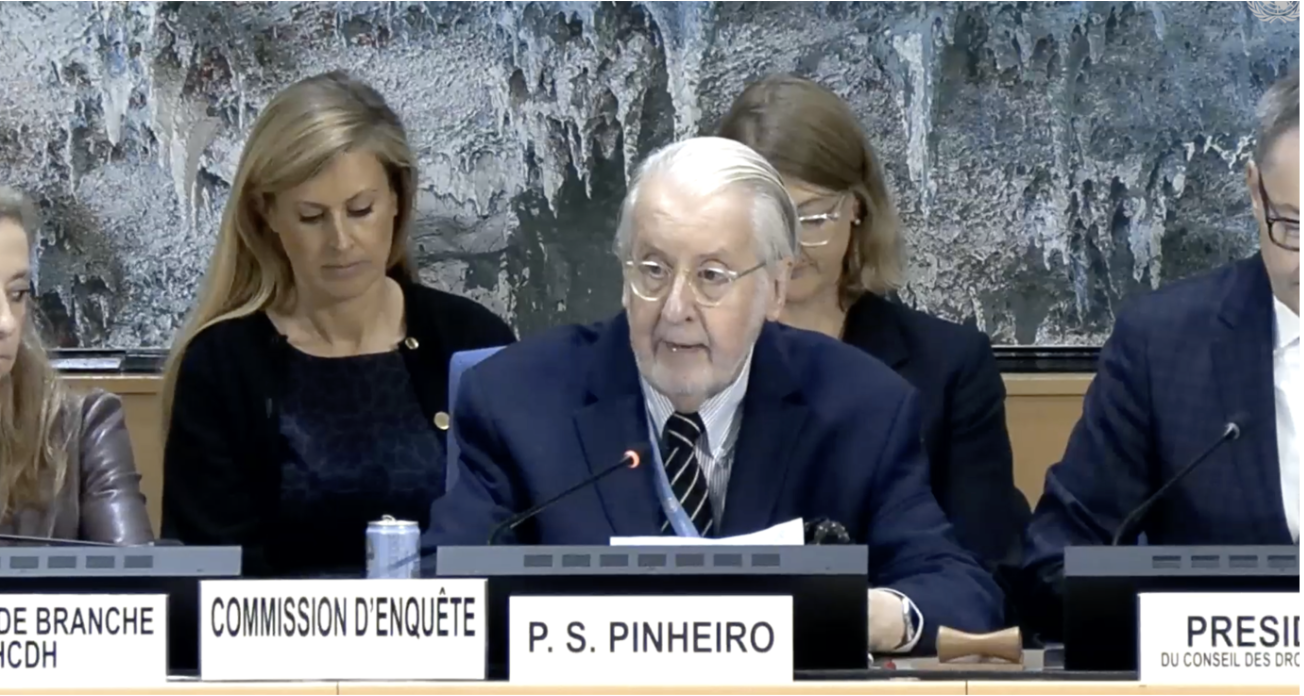
Syrians continue to demand justice and accountability amidst ongoing violence
23 September 2025
By Jennifer Kalushi / GICJ
During the 60th session of Human Rights Council the Oral Update on the Commission of Inquiry of the Syrian Arab Republic was held on 27 June 2025. Paulo Sérgio Pinheiro, Chair of the COI, reported that grave violations continue to persist nine months after the fall of the dictatorship. Chair Paulo Sérgio Pinheiro highlighted the widespread killings, abductions, sexual violence, and the July violence in Suwayda, which left hundreds dead and thousands displaced. He also condemned Israeli airstrikes and the occupation beyond the 1974 separation line, urging urgent reforms, including a moratorium on the death penalty and victim-centred transitional justice.
Syria cited progress with new commissions, refugee returns, and planned elections, while warning against external interference. States were divided: the UK and Canada demanded accountability, Qatar and Jordan stressed unity and reconstruction, and civil society denounced massacres, systematic abuses, and gender-based violence.
Geneva International Centre for Justice (GICJ) recognises recent steps taken by the Syrian Arab Republic in establishing investigative committees regarding the coastal violence and in creating a commission on transitional justice and missing persons, but stresses that genuine accountability and reparations remain indispensable. We call for sustained scrutiny, victim inclusion, and support for inclusive institutions to restore rights and dignity in Syria.
Read the full discussion report here
Item 3&5: Interactive Dialogue with Special Rapporteur on rights of Indigenous Peoples
The Vital Need to Protect Indigenous Peoples’ Rights Worldwide
23 September 2025
By Andrea Pantazi / GICJ
The 60th session of the Human Rights Council focused on the urgent need to protect the rights of Indigenous Peoples worldwide. This discussion comes as the international community approaches the 20th anniversary of the UN Declaration on the Rights of Indigenous Peoples (UNDRIP). While the Declaration has inspired progress in some regions, many States still fall short in providing legal recognition and meaningful protection for Indigenous communities.
The Special Rapporteur, Dr. Albert K. Barume, underlined that recognition of Indigenous Peoples is not optional but a legal obligation under international law. He stressed that Indigenous rights are inherent and not created by recognition, and warned against the growing practice of merging the category of Indigenous Peoples with “local communities” in environmental and biodiversity discussions, as this undermines their distinct rights. He also highlighted that self-identification, redress for historical injustices, and cultural distinctiveness must guide recognition.
Country and group statements reflected both progress and challenges. States such as Canada, Guatemala, and Ecuador reaffirmed their commitments to recognition and protection, while others, including Ukraine and the EU, raised concerns about violations in specific contexts such as Crimea. Civil society and NGOs echoed the call for stronger action, pointing to ongoing human rights abuses, violence, and systemic discrimination faced by Indigenous Peoples worldwide.
In his concluding remarks, the Special Rapporteur reaffirmed that recognition is fundamental to justice and inclusivity, and that fears about the political implications of recognition must be overcome. He committed to further regional engagement to address States’ concerns.
Geneva International Centre for Justice (GICJ) welcomes the report and reiterates its concern over the discrimination Indigenous Peoples face worldwide. Genuine recognition is essential for justice, inclusivity, and lasting peace.
`Read the full discussion report here
Items 2 & 7: Presentation of HC report on implementation of HRC res. 31/36
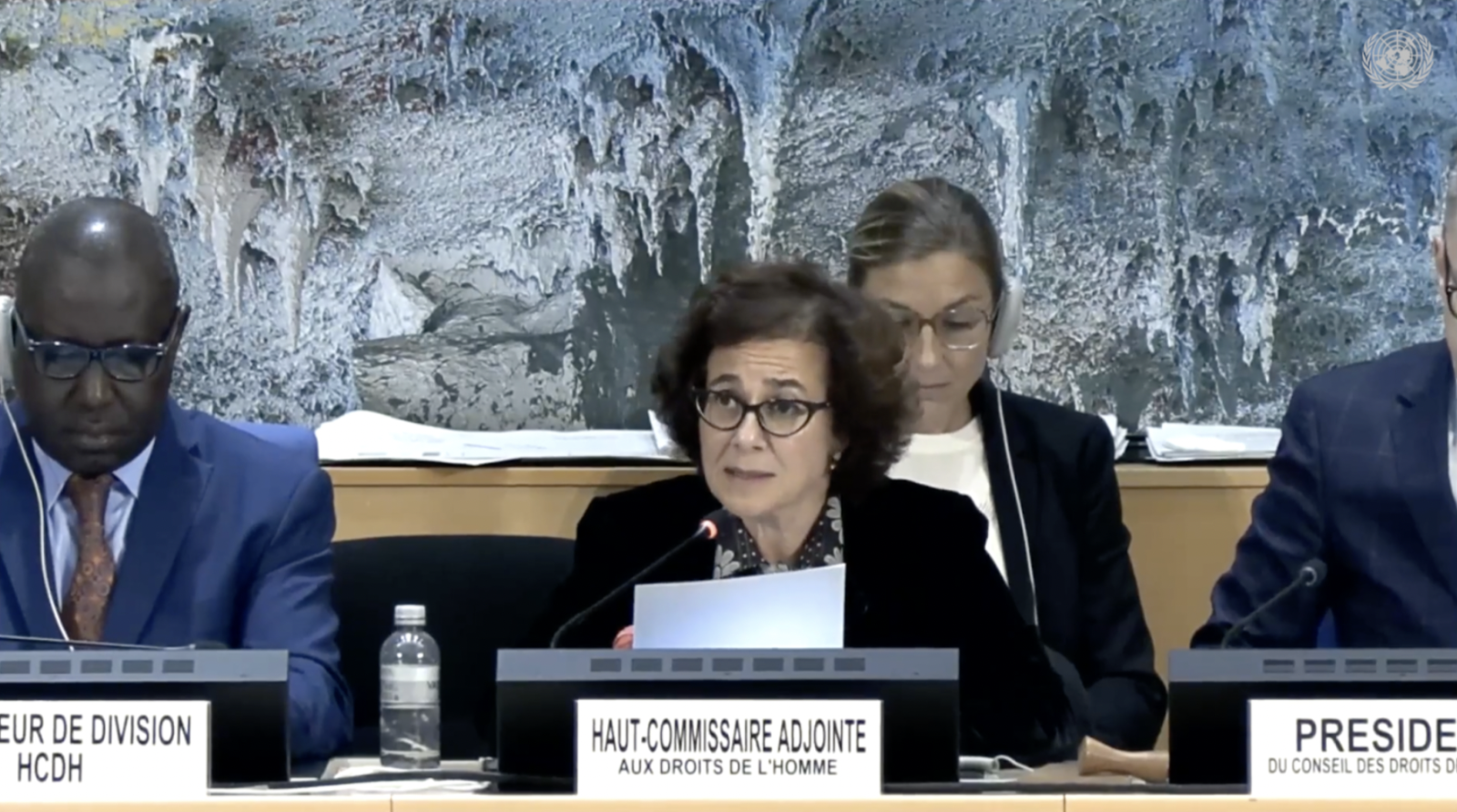
Inaction is complicity: “if you are neutral in situations of injustice you have chosen the side of the oppressor.” - Archbishop Desmond Tutu
29 September 2025
By Angela Sanchez / GICJ
On 29 and 30 September, during its 60th session, the Human Rights Council held a general debate under item 2 (Annual report of the UNHCHR and OHCHR and the Secretary General) and item 7 (Human rights situation in Palestine and other occupied Arab territories). The discussion included the relevant annual reports of the United Nations High Commissioner for Human Rights and specifically the reports pertinent to resolution 31/36 l..
The report under item 2 involved considerations on the ongoing violations of business corporations' on the continuation of activities in the occupied Palestinian territory (OPT), including East Jerusalem and the Syrian Golan. The revision adoption of resolution 53/25 from the 14th July 2023, in which the HRC is to ensure yearly updates of all business, is manifest in its latest report on the 60th session. The methods of work and methodology used to discharge the mandate as set out in Council resolution 31/36. The companies involved are those under the criteria of para 96 of the Fact Finding Missions 2013 report of activities, which included a set of companies which had enabled, facilitated and profited from the construction and growth of the settlements.
Read the full discussion report here
Annual Discussion on the Integration of a Gender Perspective (HRC res 6/30)
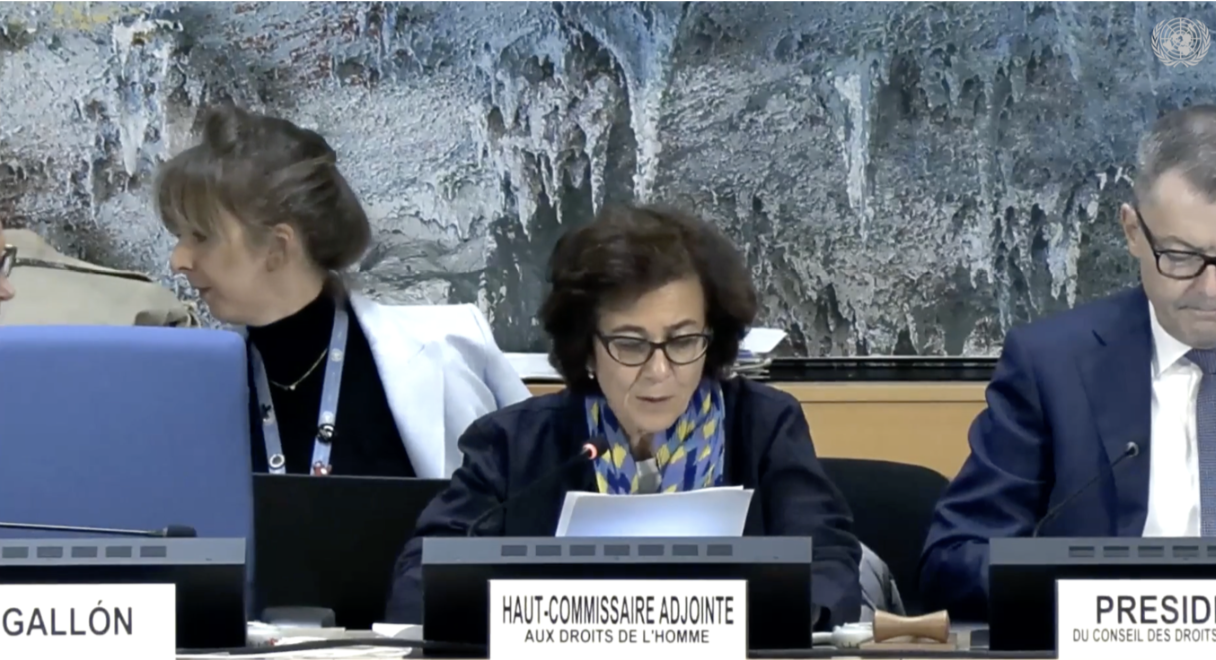
Negotiations for a Seat for Women in Justice
30 September 2025
By Rose Chiara Atieno /GICJ
At the 33rd meeting of the 60th session of the Human Rights Council, the council held the annual discussion on the inclusion of a gender perspective, with the focal point of this discussion being the inclusion of women in different places of governance. The panellists included different active members of the promotion of women’s rights, including Ms Nada Al Nashif, Ms Devi Khadka, and a few other prominent people.
Although there has been growth in the area of gender equality, there still remains grave issues in the world, including the continued rise of hate speech and hate crimes towards women. In places of conflict, women and girls continue to be victims of war, such as sexual violence continues to be used as a method of war. As for transitional justice, women and girls are rarely considered in these conversations, often drowning out the understanding that the effects of war extend beyond gender. Additionally, at times of war, women continue to bear the responsibilities and burdens of war, such as they continue to be those who care for the injured and affected families, while also being the ones who face some of the most atrocious crimes, such as sexual violence. However, they remain unrepresented for the most part as it pertains to transitional justice.
In Latin American countries, the inclusion of a gender perspective, as well as the inclusion of women in the process of transitional justice, has proved to be 1 that produces sustainable change for those areas previously affected by conflict.
Geneva International Centre for Justice (GICJ) champions the work of the council in the inclusion of women in all stages of transitional justice, urging member states to further promote the inclusion of women in all sectors, especially in justice. Additionally, we call for the council, international community, and stakeholders to push beyond performative inclusion of women and rather impactful inclusion of women that reflects the actual reality of what women need during these processes. We condemn all forms of discrimination against all persons, including women and purport that human rights are not selective and thus should include women's rights.
Read the full discussion report here
Item 9: Interactive Dialogue with Working Group on People of African Descent
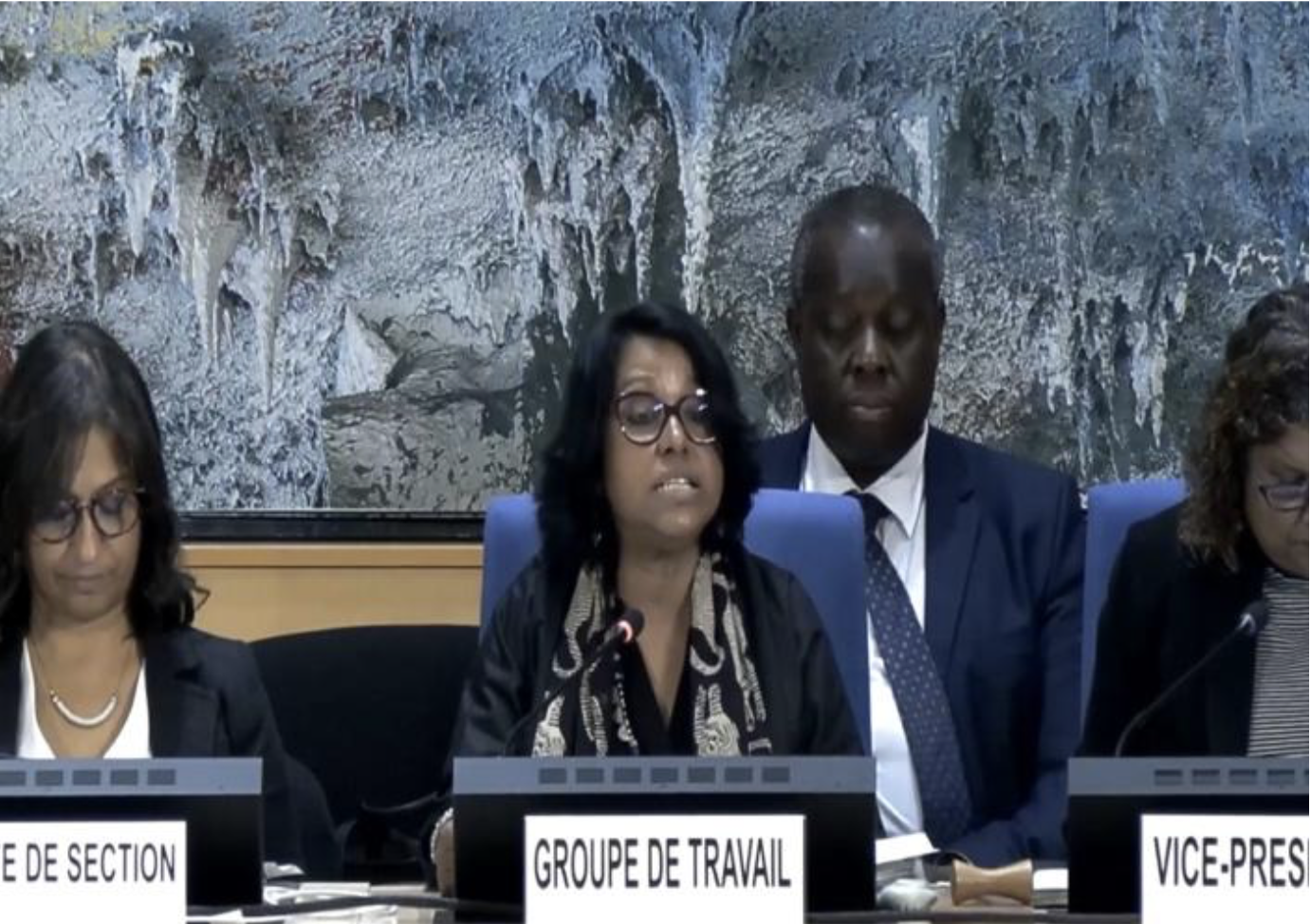
Pathways to Justice: Reparations and the Rights of People of African Descent
1 October 2025
By Jamel Nampijja / GICJ
During the 35th meeting of the 60th session of the Human Rights Council on 1st October 2025, Ms Bina D'Costa, Chair of the Working Group on People of African Descent, presented two reports during the Interactive Dialogue with the Working Group.
The report fulfils the Working Group's mandate, established under Human Rights Council resolutions 9/14 and 54/26, to examine racial discrimination against people of African descent and to propose strategies for achieving justice, equality, and redress. These particular reports focused on the political, legal, economic, and cultural aspects of reparatory justice, specifically how the international community can address the historical and ongoing impacts of enslavement, the transatlantic trade in enslaved Africans, and colonialism.
The first report, “Principles, provisions and pathways to reparatory justice for people of African descent - Report of the Permanent Forum on People of African Descent on its fourth session”, outlined principles and operational pathways for addressing the enduring legacies of enslavement, the transatlantic slave trade, colonialism, and systemic racism.
The report emphasised that reparatory measures should include recognition, restitution, compensation, rehabilitation, guarantees of non-repetition, and cultural and historical acknowledgement. It highlighted the importance of tailoring reparatory justice to each country's specific context and ensuring meaningful participation from affected communities, particularly women and youth.
Additionally, the report called for integration of reparatory justice into the Second International Decade for People of African Descent, urging that it be strategic, action-oriented, and adequately resourced.
The second report, titled “Report on the Working Group’s Country Visit to Colombia," examined the structural and systemic challenges faced by Afro-descendant communities in Colombia. Key findings included issues of statistical invisibility, barriers to accessing justice, underrepresentation, disproportionate violence, social and economic exclusion, and marginalisation.
The report emphasised the need for differentiated protection measures, the full implementation of existing laws, accountability for violations, and inclusive policies to uphold the rights of Afro-descendant populations. Additionally, it highlighted the importance of restoring land rights, safeguarding cultural heritage, and promoting participation in national and local decision-making processes.
During the Interactive Dialogue, Member States generally supported the findings and recommendations of both reports. Delegations shared domestic initiatives, including legal recognition of African-descendant populations, affirmative action programs, restitution of lands and cultural heritage, initiatives focused on memory and truth, and institutional reforms to dismantle structural inequalities. Many emphasised the importance of regional cooperation, high-level advocacy, and integrating reparatory justice into international human rights frameworks.
Civil society and human rights organisations emphasised that reparatory justice is a binding obligation, not merely a symbolic gesture. They called for mechanisms that are transparent, participatory, and evidence-based for implementation. Furthermore, they stressed that reparatory justice must address the economic, cultural, and social consequences of historical injustices, with particular attention to gender and youth perspectives.
The Interactive Dialogue concluded by underscoring the need to move from recognition to accountability and implementation, addressing both historical and contemporary forms of racial discrimination. They reaffirmed that reparatory justice is essential for building equitable, inclusive, and just societies for people of African descent globally.
There was also a call to integrate reparatory justice into the Second International Decade for People of African Descent, ensuring that it is action-oriented, strategic, and well-resourced.
Geneva International Centre for Justice (GICJ) welcomed the report of the Working Group. GICJ stresses the importance of establishing transparent, participatory, and evidence-based mechanisms for implementing reparatory justice. This process should be regarded as a moral, legal, and historical imperative, not a symbolic gesture.
Read the full discussion report here
Item 9: Interactive Dialogue on the report of the Permanent Forum on People of African Descent
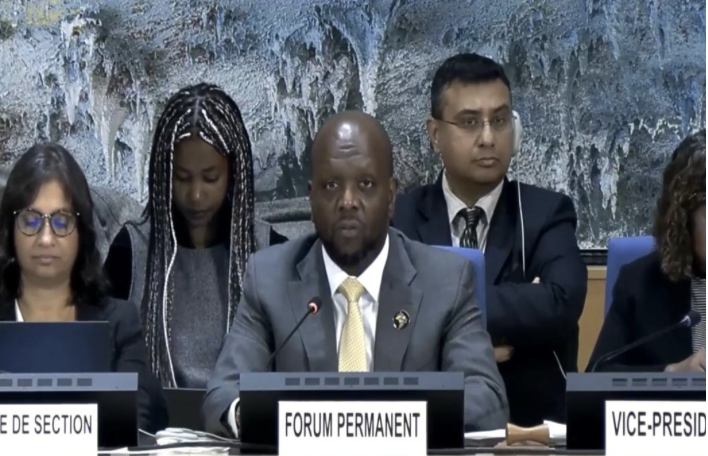
Advancing Recognition, Justice, and Development for People of African Descent in the Age of Artificial Intelligence
1 October 2025
By Jamel Nampijja / GICJ
During the 35th and 36th meetings of the Human Rights Council's 60th session on 1 October 2025, Mr Martin Kimani, Chair of the Permanent Forum on People of African Descent, presented the Report of the Permanent Forum on People of African Descent (A/HRC/60/72), which discussed the outcomes of the Forum's fourth session.
The fourth session was held in New York from 14 to 17 April 2025 under the theme "Africa and people of African descent: united for reparatory justice in the age of artificial intelligence," in accordance with General Assembly resolution 75/314. This report fulfils the Forum's mandate to examine the challenges faced by people of African descent and to propose strategies to advance their recognition, justice, and development. The report included a summary of the Forum's discussions, conclusions, and recommendations from the fourth session.
The report emphasised the urgent need for reparatory justice, which should be comprehensive and multidimensional. Key measures highlighted include recognition, restitution, compensation, cultural and heritage restoration, climate action, debt relief, and guarantees of non-repetition. Delegations and civil society stressed the importance of meaningful participation from affected communities, particularly youth and women, and stressed the need to tailor reparatory measures to local and regional contexts.
During the Interactive Dialogue, Member States, civil society and human rights organisations generally supported the report's findings and recommendations. Delegations shared domestic initiatives, such as legal recognition of African-descended populations, restitution of lands and cultural heritage, affirmative action programmes, and institutional reforms to dismantle structural inequalities. Many emphasised the importance of regional cooperation, high-level advocacy, and integrating reparatory justice into international human rights frameworks.
A key topic of discussion was digital justice and artificial intelligence. Delegations emphasised the need for ethical AI governance, safeguards against bias, equitable access to technology, and inclusive STEM education. It was noted that coordination between UN bodies and the active participation of developing countries and marginalised communities are essential to ensure technology empowers rather than marginalises.
Regional consultations in Colombia and Brazil were highlighted as effective examples of engaging with African-descended communities, fostering dialogue on reparatory justice and contributing to the drafting of the UN Declaration on the Rights of People of African Descent.
Civil society organisations also emphasised that reparatory justice is a binding obligation that requires transparent, participatory, and evidence-based implementation. They called for system-wide UN action to integrate anti-racism and reparatory justice into economic, fiscal, and policy frameworks. In his final remarks, Mr Kimani outlined measures to combat racism in AI, including nominating experts, submitting evidence of harm, and linking intergovernmental dialogue to national legislation and human rights processes. He also reiterated the importance of regional consultations to promote inclusion and engagement with African-descended communities.
The interactive dialogue concluded with a shared understanding that achieving recognition, justice, and developmentfor people of African descent is urgent and complex. Delegations and civil society reaffirmed that reparatory justice, inclusion, and accountability are essential for creating equitable, inclusive, and sustainable societies worldwide. They emphasised that priorities must be integrated into the Second International Decade for People of African Descent in a strategic, action-oriented, and well-resourced manner.
Geneva International Centre for Justice (GICJ) welcomes the report of the Permanent Forum on People of African Descent regarding its fourth session. We urge the United Nations and its Member States to take advantage of the Second International Decade for People of African Descent to implement concrete measures for recognition, reparatory justice, and inclusive development. We call for the adoption of the UN Declaration on the Rights of People of African Descent and for the integration of its principles into national and international policies. Acknowledgement of historical and structural racism must lead to tangible justice and lasting equality for all people of African descent.
Read the full discussion report here
Item 9: Enhanced interactive dialogue with the High Commissioner and the International Independent Expert Mechanism to Advance Racial Justice and Equality in Law Enforcement
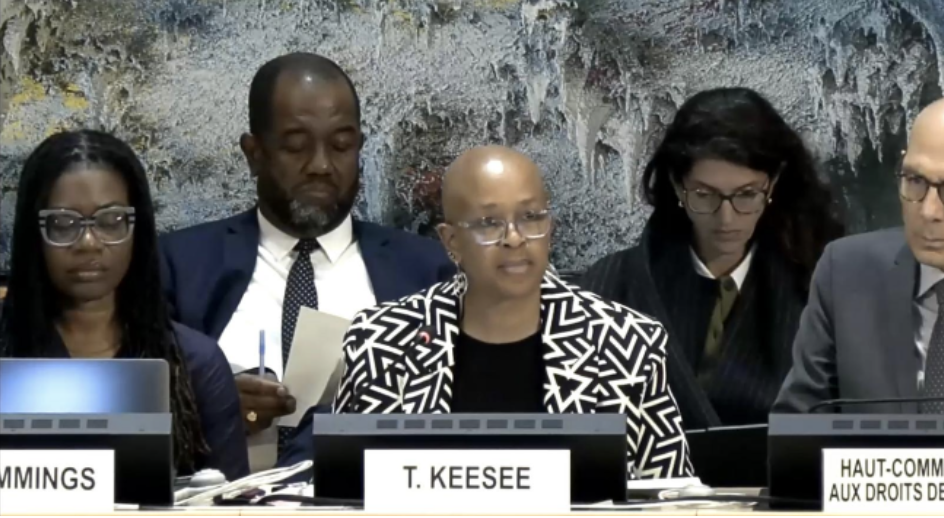
Repairing historical injustices: key to dismantling systemic racism
1 October 2025
By Léa Farge / GICJ
On 1 October 2025, during the 36th meeting of its 60th session, the UN Human Rights Council held an enhanced interactive dialogue. During this meeting, the High Commissioner for Human Rights and the representative of the Expert Mechanism presented the recommendations outlined in their respective reports to combat systemic racism and discrimination against Africans and people of African descent. It served as a platform for States and NGOs to exchange views and share best practices aimed at building societies free from racial discrimination and violence.
The discussions reiterated that the legacies of slavery, the transatlantic slave trade, and colonisation have left deep and lasting scars, not only in economic terms, through systemic inequality, impoverishment, and land dispossession, but also at institutional, cultural, and symbolic levels. These historical injustices continue to shape contemporary systems and structures, which in turn sustain patterns of racial inequality, exclusion, and violence.
In this context, reparatory justice was highlighted as a vital mechanism for addressing these enduring harms and dismantling the systems that perpetuate systemic racism. It refers to the process of making amends for historical wrongs by providing redress for the physical, material, and moral harm suffered by individuals, communities, and nations. At its core, reparatory justice seeks not only to correct past injustices but also to restore dignity and promote healing for those who continue to bear the consequences of these wrongs.
States and civil society organisations taking part in the dialogue unanimously recognised the imperative of reparatory justice as a central response to the enduring legacies of slavery. There was a strong emphasis on the fact that reparatory processes must not be symbolic, but rather developed in genuine partnership with affected communities. This means ensuring their full participation, centring their voices, and recognising their agency in shaping the measures intended to address both historical harm and present-day inequalities.
Delegates and NGOs emphasised that reparatory justice must encompass a comprehensive set of measures, including official apologies, financial compensation, institutional and legal reforms, memorialisation, and the decolonisation of education systems. These actions were framed not merely as gestures of goodwill, but as necessary conditions for restoring dignity, building trust, and advancing toward more just, inclusive, and equitable societies.
Geneva International Centre for Justice (GICJ) calls for the full implementation of the report’s recommendations and for former colonial powers to acknowledge the profound harm inflicted upon Africans and people of African descent, as well as the lasting consequences of those injustices. We urge all States to strengthen their legal and institutional frameworks to ensure the protection, promotion, and full realisation of the rights of people of African descent, paving the way toward a truly equal and just society.
Read the full discussion report here
Item 10: Interactive Dialogue with the Independent Expert on the Central African Republic
The Politics of Unaccountability: Impunity and Insecurity in the Central African Republic
2 October 2025
By Shalina Prakash / GICJ
The Interactive dialogue with the Independent Expert on the issue of human rights in the Central African Republic took place during the 38th meeting of the 60th session of the Human Rights Council. Concluding with the Independent Expert recognising CAR’s resilience and significant progress, the recognition was also met with numerous delegations emphasising the urgent and essential need for continued support for a country that has experienced protracted conflict.
Expressing grave concerns over recurrent human rights violations and breaches of international humanitarian law, Mr. Agbetse outlined essential services the Central African Republic needs, directing his recommendations to the international community, crucial stakeholders in the region and the CAR government. He also acknowledged the cooperation and commitment of the authorities of the Central African Republic, as well as the United Nations Multidimensional Integrated Stabilisation Mission in the
Central African Republic (MINUSCA), alongside stakeholders who have contributed to a successful completion of his mandate over the past six years.
Read the full discussion report here
Item 10: Interactive Dialogue on technical cooperation in Libya
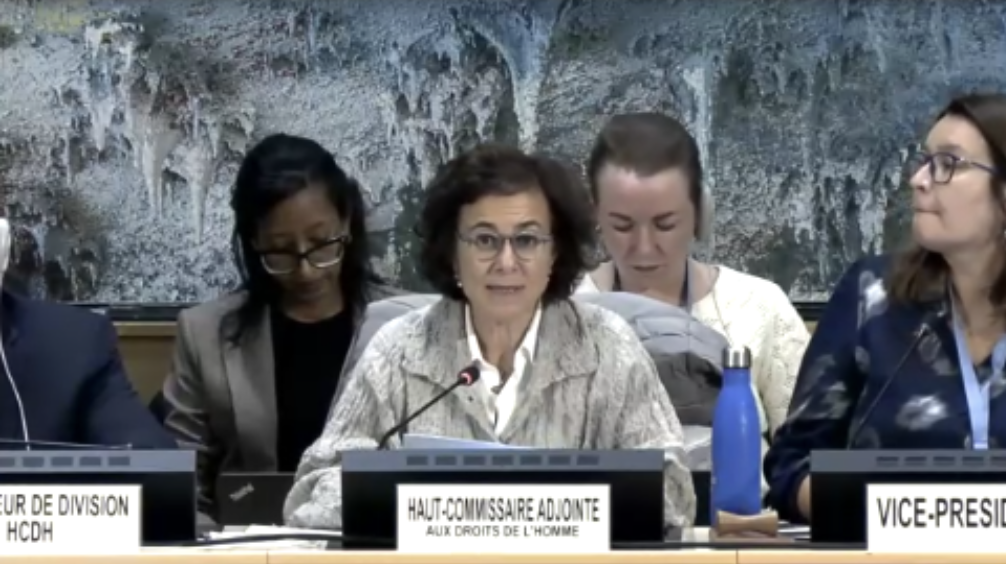
Libya in Transition: Navigating Human Rights Challenges
2- 3 October 2025
By Teboho Mosebo/ GICJ
During the 38th and 39th meetings of the 60th Session of the Human Rights Council, held on October 2-3, 2025, the Interactive Dialogue on technical cooperation in Libya highlighted the pressing need for meaningful progress on human rights in the country. Deputy High Commissioner Nada Al-Nashif presented the report A/HRC/60/82 on technical assistance and capacity-building carried out by the Office of the United Nations High Commissioner for Human Rights (OHCHR) in cooperation with Libyan authorities from April 2024 to May 2025.
Al-Nashif underscored the concerning human rights situation in Libya, particularly the stalled transitional justice and reconciliation efforts, widespread arbitrary detention, and deteriorating civic space and women's rights. She emphasised the need for Libya to prioritise human rights and implement the recommendations, which include ensuring accountability, supporting Libyan-led reconciliation, and enhancing technical assistance and capacity-building efforts.
NGOs participating in the meeting expressed a range of views on the human rights situation in Libya. While some condemned persistent human rights abuses, others acknowledged the efforts made by Libyan authorities to address human rights challenges. NGOs welcomed Libya's efforts to investigate cases involving disappearance and torture and repeal laws criminalising political expression or restricting a free and independent press. However, they also expressed deep concern about the dire situation of migrants, refugees, and asylum-seekers, who face hate speech, disinformation, and violent attacks. Furthermore, they highlighted the alarming conditions in detention facilities, where detainees face torture, ill-treatment, and poor living conditions.
Geneva International Centre for Justice (GICJ) commends the OHCHR's efforts to support Libyan authorities in addressing human rights challenges. We urge the Libyan government to fully engage with the international community and implement the report's recommendations. Specifically, we call on Libya to prioritise human rights, ensure accountability for human rights abuses and violations, and promote civic space and women's rights.
We are particularly concerned about the situation of detainees in Libya and call on the government to take immediate action to improve detention conditions and prevent further human rights abuses. Meaningful cooperation between Libyan authorities and the international community is crucial for promoting human rights and the rule of law.
Read the full discussion report here
Item 10: Presentation of the High Commissioner's country report on Yemen, followed by General Debate
Building accountability amid conflict in Yemen
3 October 2025
By Astrid Bochnakian / GICJ
During the 60th session of the Human Rights Council, on 3 October 2025, the Office of the High Commissioner for Human Rights (OHCHR) presented its report on Yemen under Agenda Item 10, reviewing technical assistance provided to the National Commission of Inquiry (NCI) between September 2024 and August 2025. The report and ensuing debate highlighted the worsening human rights situation across the country, marked by increasing repression, widespread arbitrary detentions, restrictions on civic space, and the persecution of journalists, human rights defenders, and religious minorities in areas controlled by the de facto Houthi authorities. The continued detention of UN and NGO staff was widely condemned as a violation of international law and emblematic of the broader culture of impunity in Yemen.
Despite the challenging environment, the NCI remains a key national mechanism working towards accountability and transitional justice. With OHCHR’s support, the Commission continued investigations, field missions, and capacity-building activities to document abuses by all parties. However, its ability to operate effectively is constrained by limited funding, insecurity, and a lack of cooperation from the de facto authorities. Delegations and civil society participants reaffirmed the importance of technical assistance and capacity-building, while stressing that these must be accompanied by political commitment and structural reform to address the root causes of Yemen’s protracted crisis.
Geneva International Centre for Justice (GICJ) welcomes the High Commissioner’s report and echoes calls for stronger protection, accountability, and humanitarian action. GICJ expresses grave concern over the continuing violations by all parties, particularly the Houthis, and emphasises that capacity-building cannot substitute for accountability. The organisation urges the Council, OHCHR, and the international community to:
- Strengthen human rights monitoring through secure and independent reporting mechanisms in Houthi-controlled areas;
- Support accountability and transitional justice by training prosecutors, legal professionals, and civil society actors to manage evidence and assist victims;
- Promote regional and international cooperation to enforce sanctions and enable prosecution of serious violations through international or hybrid mechanisms;
- Enhance humanitarian access by providing technical assistance to the Internationally Recognised Government to ensure aid reaches civilians without legitimising armed groups;
- Foster conflict resolution and peace-building through inclusive initiatives and integration of human rights safeguards into peace negotiations and post-conflict recovery plans.
GICJ reiterates that sustainable peace in Yemen requires justice, accountability, and respect for human dignity. Technical assistance must serve as a foundation for a rights-based transition to peace, ensuring that the suffering of the Yemeni people gives rise not to impunity, but to lasting reconciliation and reform.
Read the full discussion report here
During the 60th Session of the Human Rights Council, a wide range of pressing human rights concerns was addressed, with particular urgency given to situations in Palestine, Sudan, and the Democratic Republic of the Congo. The month was marked by continued violations, notably by Israel, including the attack on Doha on 9 September, immediately following the opening of the Council. Further breaches of international law were reported, such as the kidnapping and detention of peaceful activists aboard the Sumud Flotilla in international waters, under inhumane conditions.
Grave violations against women in Sudan and Afghanistan remain widespread, while in Yemen, the continued political control exercised by the Houthis has severely hindered access to safe education and a secure environment for Yemenis and minorities. Toward the end of the session, renewed attempts at a ceasefire between Israel and Hamas were observed, offering a potential path toward de-escalation and the hope of an end to ongoing atrocities.
A broad spectrum of delegations, including Spain, Malaysia, Indonesia, Cuba, Brazil, Ghana, South Africa, as well as members of the Arab and African groups, denounced the ongoing genocide and the Israeli war on the people of Palestine.
There was minimal opposition to affirmations of the Palestinian right to self-determination, life, and dignity. Significantly, the recognition by the Commission of Inquiry (COI) of the genocide occurring against Palestinians marked a step toward accountability and an end to longstanding impunity.
Despite recurring international calls, many of the same crises re-emerge at each Council session, underscoring persistent gaps in enforcement mechanisms and the limitations of existing sanctions frameworks. This highlights the pressing need for stronger implementation of the UN Charter and international conventions by all States without exception.
Civil society and non-governmental organisations played a crucial role throughout the session, offering independent analysis, factual reporting, and principled advocacy. Side events further enriched the discussions, particularly on Palestine and Sudan, by providing direct engagement with affected individuals, including medical professionals and civilians, whose testimonies brought urgency to the Council’s deliberations.
GICJ would like to extend its thanks and appreciation to its collaborators, including interns and volunteers, for their hard work during the session. Participating at the Human Rights Council and other UN bodies is a big honour and responsibility, as well as a great learning opportunity, given the significant amount of work delivered by everyone involved.
For those interested in human rights and GICJ activities, we encourage you to look into the work of our collaborators, which includes written reports and oral statements.
If you want to join our team and contribute to the work of the organisation, you can write to
Click on the image below to read about our collaborators!!





